- Affiliate Program

- UNITED STATES
- 台灣 (TAIWAN)
- TÜRKIYE (TURKEY)
- Academic Editing Services
- - Research Paper
- - Journal Manuscript
- - Dissertation
- - College & University Assignments
- Admissions Editing Services
- - Application Essay
- - Personal Statement
- - Recommendation Letter
- - Cover Letter
- - CV/Resume
- Business Editing Services
- - Business Documents
- - Report & Brochure
- - Website & Blog
- Writer Editing Services
- - Script & Screenplay
- Our Editors
- Client Reviews
- Editing & Proofreading Prices
- Wordvice Points
- Partner Discount
- Plagiarism Checker
- APA Citation Generator
- MLA Citation Generator
- Chicago Citation Generator
- Vancouver Citation Generator
- - APA Style
- - MLA Style
- - Chicago Style
- - Vancouver Style
- Writing & Editing Guide
- Academic Resources
- Admissions Resources

How to Choose a Research Paper Title with Examples
What is a research paper title and why does it matter?
A research title summarizes the aim and purpose of your research study. Making a title for your research is one of the most important decisions when writing an article to publish in journals. The research title is the first thing that journal editors and reviewers see when they look at your paper and the only piece of information that fellow researchers will see in a database or search engine query. Good titles that are concise and contain all the relevant terms have been shown to increase citation counts and Altmetric scores .
Therefore, when you title research work, make sure it captures all of the relevant aspects of your study, including the specific topic and problem being investigated. It also should present these elements in a way that is accessible and will captivate readers. Follow these steps to learn how to make a good research title for your work.
How to Make a Research Paper Title in 5 Steps
You might wonder how you are supposed to pick a title from all the content that your manuscript contains—how are you supposed to choose? What will make your research paper title come up in search engines and what will make the people in your field read it?
In a nutshell, your research title should accurately capture what you have done, it should sound interesting to the people who work on the same or a similar topic, and it should contain the important title keywords that other researchers use when looking for literature in databases. To make the title writing process as simple as possible, we have broken it down into 5 simple steps.
Step 1: Answer some key questions about your research paper
What does your paper seek to answer and what does it accomplish? Try to answer these questions as briefly as possible. You can create these questions by going through each section of your paper and finding the MOST relevant information to make a research title.
Step 2: Identify research study keywords
Now that you have answers to your research questions, find the most important parts of these responses and make these your study keywords. Note that you should only choose the most important terms for your keywords–journals usually request anywhere from 3 to 8 keywords maximum.
Step 3: Research title writing: use these keywords
“We employed a case study of 60 liver transplant patients around the US aged 20-50 years to assess how waiting list volume affects the outcomes of liver transplantation in patients; results indicate a positive correlation between increased waiting list volume and negative prognosis after the transplant procedure.”
The sentence above is clearly much too long for a research paper title. This is why you will trim and polish your title in the next two steps.
Step 4: Create a working research paper title
To create a working title, remove elements that make it a complete “sentence” but keep everything that is important to what the study is about. Delete all unnecessary and redundant words that are not central to the study or that researchers would most likely not use in a database search.
“ We employed a case study of 60 liver transplant patients around the US aged 20-50 years to assess how the waiting list volume affects the outcome of liver transplantation in patients ; results indicate a positive correlation between increased waiting list volume and a negative prognosis after transplant procedure ”
Now shift some words around for proper syntax and rephrase it a bit to shorten the length and make it leaner and more natural. What you are left with is:
“A case study of 60 liver transplant patients around the US aged 20-50 years assessing the impact of waiting list volume on outcome of transplantation and showing a positive correlation between increased waiting list volume and a negative prognosis” (Word Count: 38)
This text is getting closer to what we want in a research title, which is just the most important information. But note that the word count for this working title is still 38 words, whereas the average length of published journal article titles is 16 words or fewer. Therefore, we should eliminate some words and phrases that are not essential to this title.
Step 5: Remove any nonessential words and phrases from your title
Because the number of patients studied and the exact outcome are not the most essential parts of this paper, remove these elements first:
“A case study of 60 liver transplant patients around the US aged 20-50 years assessing the impact of waiting list volume on outcomes of transplantation and showing a positive correlation between increased waiting list volume and a negative prognosis” (Word Count: 19)
In addition, the methods used in a study are not usually the most searched-for keywords in databases and represent additional details that you may want to remove to make your title leaner. So what is left is:
“Assessing the impact of waiting list volume on outcome and prognosis in liver transplantation patients” (Word Count: 15)
In this final version of the title, one can immediately recognize the subject and what objectives the study aims to achieve. Note that the most important terms appear at the beginning and end of the title: “Assessing,” which is the main action of the study, is placed at the beginning; and “liver transplantation patients,” the specific subject of the study, is placed at the end.
This will aid significantly in your research paper title being found in search engines and database queries, which means that a lot more researchers will be able to locate your article once it is published. In fact, a 2014 review of more than 150,000 papers submitted to the UK’s Research Excellence Framework (REF) database found the style of a paper’s title impacted the number of citations it would typically receive. In most disciplines, articles with shorter, more concise titles yielded more citations.
Adding a Research Paper Subtitle
If your title might require a subtitle to provide more immediate details about your methodology or sample, you can do this by adding this information after a colon:
“ : a case study of US adult patients ages 20-25”
If we abide strictly by our word count rule this may not be necessary or recommended. But every journal has its own standard formatting and style guidelines for research paper titles, so it is a good idea to be aware of the specific journal author instructions , not just when you write the manuscript but also to decide how to create a good title for it.
Research Paper Title Examples
The title examples in the following table illustrate how a title can be interesting but incomplete, complete by uninteresting, complete and interesting but too informal in tone, or some other combination of these. A good research paper title should meet all the requirements in the four columns below.
Tips on Formulating a Good Research Paper Title
In addition to the steps given above, there are a few other important things you want to keep in mind when it comes to how to write a research paper title, regarding formatting, word count, and content:
- Write the title after you’ve written your paper and abstract
- Include all of the essential terms in your paper
- Keep it short and to the point (~16 words or fewer)
- Avoid unnecessary jargon and abbreviations
- Use keywords that capture the content of your paper
- Never include a period at the end—your title is NOT a sentence
Research Paper Writing Resources
We hope this article has been helpful in teaching you how to craft your research paper title. But you might still want to dig deeper into different journal title formats and categories that might be more suitable for specific article types or need help with writing a cover letter for your manuscript submission.
In addition to getting English proofreading services , including paper editing services , before submission to journals, be sure to visit our academic resources papers. Here you can find dozens of articles on manuscript writing, from drafting an outline to finding a target journal to submit to.
- Write my thesis
- Thesis writers
- Buy thesis papers
- Bachelor thesis
- Master's thesis
- Thesis editing services
- Thesis proofreading services
- Buy a thesis online
- Write my dissertation
- Dissertation proposal help
- Pay for dissertation
- Custom dissertation
- Dissertation help online
- Buy dissertation online
- Cheap dissertation
- Dissertation editing services
- Write my research paper
- Buy research paper online
- Pay for research paper
- Research paper help
- Order research paper
- Custom research paper
- Cheap research paper
- Research papers for sale
- Thesis subjects
- How It Works
80+ Great Research Titles Examples in Various Academic Fields

Coming up with a research title for an academic paper is one of the most challenging parts of the writing process. Even though there is an unlimited quantity of research titles to write about, knowing which one is best for you can be hard. We have done the research for you and compiled eighty examples of research titles to write on. Additionally, we have divided the research titles examples into sections to make them easier to choose.
Research Study Examples of Current Events
Examples of research topics on ethics, title of research study examples on health, research paper title examples on social concerns, examples of research title on art and culture, example of research interest in religion, samples of research study topics on technology, research examples of environmental studies, good research title examples on history, specific topic examples regarding education, research title examples for students on family, food, and nutrition, research problems examples computer science, samples of research title about business marketing and communications, sample of research study topics in women’s studies, research problem example on politics, what are some examples of research paper topics on law, final words about research titles.
When it comes to choosing a good sample research title, research is one of the best tips you can get. By reading widely, including your school notes and scholarly articles, you will have a problem/line of interest examples in research. Then, you can derive any question from areas that appear to have a knowledge gap and proceed with researching the answer. As promised, below are eighty research title examples categorized into different areas, including social media research topics .
- Discuss the peculiar policies of a named country – for example, discuss the impacts of the one-child policy of China.
- Research on the influence of a named political leader, say a president, on the country they governed and other countries around. For instance, you can talk about how Trump’s presidency has changed international relations.
- Conduct an analysis of a particular aspect of two named countries – for example, the history of the relationship between the U.S. and North Korea.
- Compare the immigration laws in two or more named countries – for example, discuss how the immigration laws in the U.S. compares with other countries.
- Discuss how the Black Lives Matter movement has affected the view and discussions about racism in the United States.
- Enumerate the different ways the government of the United States can reduce deaths arising from the unregulated use of guns.
- Analyze the place of ethics in medicine or of medical practitioners. For instance, you can discuss the prevalence of physician-assisted suicides in a named country. You may also talk about the ethicality of such a practice and whether it should be legal.
- Explain how recent research breakthroughs have affected that particular field – for instance, how stem cell research has impacted the medical field.
- Explain if and why people should be able to donate organs in exchange for money.
- Discuss ethical behaviors in the workplace and (or) the educational sector. For example, talk about whether or not affirmative action is still important or necessary in education or the workplace.
- Weigh the benefits and risks of vaccinating children and decide which one outweighs the other. Here, you might want to consider the different types of vaccinations and the nature and frequency of associated complications.
- Investigate at least one of the health issues that currently pose a threat to humanity and which are under investigation. These issues can include Alzheimer’s, cancer, depression, autism, and HIV/AIDS. Research how these issues affect individuals and society and recommend solutions to alleviate cost and suffering.
- Study some individuals suffering from and under treatment for depression. Then, investigate the common predictors of the disease and how this information can help prevent the issue.
Tip : To make this example of a research title more comprehensive, you can focus on a certain age range – say, teenagers.
- Discuss whether or not free healthcare and medication should be available to people and the likely implications.
- Identify and elucidate different methods or programs that have been most effective in preventing or reducing teen pregnancy.
- Analyze different reasons and circumstances for genetic manipulation and the different perspectives of people on this matter. Then, discuss whether or not parents should be allowed to engineer designer babies.
- Identify the types of immigration benefits, including financial, medical, and education, your country provides for refugees and immigrants. Then, discuss how these benefits have helped them in settling down and whether more or less should be provided.
- Discuss the acceptance rate of the gay community in your country or a specific community. For example, consider whether or not gay marriage is permitted if they can adopt children, and if they are welcome in religious gatherings.
- Explore and discuss if terrorism truly creates a fear culture that can become a society’s unintended terrorist.
- Consider and discuss the different techniques one can use to identify pedophiles on social media.
Tip : Social issues research topics are interesting, but ensure you write formally and professionally.
- Investigate the importance or lack of importance of art in primary or secondary education. You can also recommend whether or not it should be included in the curriculum and why.
Tip : You can write on this possible research title based on your experiences, whether positive or negative.
- Discuss the role of illustration in children’s books and how it facilitates easy understanding in children. You may focus on one particular book or select a few examples and compare and contrast.
- Should the use of art in books for adults be considered, and what are the likely benefits?
- Compare and contrast the differences in art from two named cultural Renaissance – for instance, the Northern Renaissance and the Italian Renaissance.
- Investigate how sexism is portrayed in different types of media, including video games, music, and film. You can also talk about whether or not the amount of sexism portrayed has reduced or increased over the years.
- Explore different perspectives and views on dreams; are they meaningful or simply a game of the sleeping mind? You can also discuss the functions and causes of dreams, like sleeping with anxiety, eating before bed, and prophecies.
- Investigate the main reasons why religious cults are powerful and appealing to the masses, referring to individual cases.
- Investigate the impact of religion on the crime rate in a particular region.
Tip : Narrow down this research title by choosing to focus on a particular age group, say children or teenagers, or family. Alternatively, you can focus on a particular crime in the research to make the paper more extensive.
- Explore reasons why Martin Luther decided to split with the Catholic church.
- Discuss the circumstances in Siddhartha’s life that led to him becoming the Buddha.
Tip : It is important to remove sentiments from your research and base your points instead on clear evidence from a sound study. This ensures your title of research does not lead to unsubstantiated value judgments, which reduces the quality of the paper.
- Discuss how the steel sword, gunpowder, biological warfare, longbow, or atomic bomb has changed the nature of warfare.
Tip : For this example of the research problem, choose only one of these technological developments or compare two or more to have a rich research paper.
- Explore the changes computers, tablets, and smartphones have brought to human behaviors and culture, using published information and personal experience.
Tip : Approach each research study example in a research paper context or buy research paper online , giving a formal but objective view of the subject.
- Are railroads and trains primary forces in the industrialization, exploitation, and settlement of your homeland or continent?
- Discuss how the use of fossil fuels has changed or shaped the world.
Tip : Narrow down this title of the research study to focus on a local or particular area or one effect of fossil fuels, like oil spill pollution.
- Discuss what progress countries have made with artificial intelligence. You can focus on one named country or compare the progress of one country with another.
- Investigate the factual status of global warming – that is, is it a reality or a hoax? If it is a reality, explore the primary causes and how humanity can make a difference.
- Conduct in-depth research on endangered wildlife species in your community and discuss why they have become endangered. You can also enumerate what steps the community can take to prevent these species from going extinct and increase their chances of survival.
- Investigate the environmental soundness of the power sources in your country or community. Then, recommend alternative energy sources that might be best suited for the area and why.
- Consider an area close to wildlife reserves and national parks, and see whether oil and mineral exploration has occurred there. Discuss whether this action should be allowed or not, with fact-backed reasons.
- Investigate how the use and abolishment of DDT have affected the population of birds in your country.
Tip : Each example research title requires that you consult authoritative scientific reports to improve the quality of your paper. Furthermore, specificity and preciseness are required in each example of research title and problem, which only an authority source can provide.
- Discuss the importance of a major historical event and why it was so important in the day. These events can include the assassination of John F. Kennedy or some revolutionary document like the Magna Carta.
- Consider voyagers such as the Vikings, Chinese, as well as native populations and investigate whether Columbus discovered America first.
- Choose a named historical group, family, or individual through their biographies, examining them for reader responses.
- Research people of different cultural orientations and their responses to the acts of others who live around them.
- Investigate natural disasters in a named country and how the government has responded to them. For example, explore how the response of the New Orleans government to natural disasters has changed since Hurricane Katrina.
Tip : Focus this research title sample on one particular country or natural disaster or compare the responses of two countries with each other.
- Explore the educational policy, “no child left behind,” investigating its benefits and drawbacks.
- Investigate the concept of plagiarism in the twenty-first century, its consequences, and its prevalence in modern universities. Take a step further to investigate how and why many students don’t understand the gravity of their errors.
- Do in-depth research on bullying in schools, explaining the seriousness of the problem in your area in particular. Also, recommend actions schools, teachers, and parents can take to improve the situation if anything.
- Explore the place of religion in public schools; if it has a place, explain why, and if it does not, explain why not.
- Does a student’s financial background have any effect on his or her academic performance? In this sample research title, you can compare students from different financial backgrounds, from wealthy to average, and their scores on standardized tests.
- Is spanking one’s child considered child abuse; if so, why? In this research problem example for students, consider whether or not parents should be able to spank their children.
- Investigate the relationship between family health and nutrition, focusing on particular nutrition. This example of the title of the research study, for instance, can focus on the relationship between breastfeeding and baby health.
- Elucidate on, if any, the benefits of having a home-cooked meal and sitting down as a family to eat together.
- Explore the effect of fast-food restaurants on family health and nutrition, and whether or not they should be regulated.
- Research local food producers and farms in your community, pinpointing how much of your diet is acquired from them.
Tip : These are great research titles from which you can coin research topics for STEM students .
- Compare and contrast the two major operating systems: Mac and Windows, and discuss which one is better.
Tip : This title of the research study example can lead to strong uninformed opinions on the matter. However, it is important to investigate and discuss facts about the two operating systems, basing your conclusions on these.
- Explain the effect of spell checkers, autocorrect functions, and grammar checkers on the writing skills of computer users. Have these tools improved users’ writing skills or weakened them?
Tip : For this example of title research, it is better to consider more than one of these tools to write a comprehensive paper.
- Discuss the role(s) artificial intelligence is playing now or will likely play in the future as regards human evolution.
- Identify and investigate the next groundbreaking development in computer science (like the metaverse), explaining why you believe it will be important.
- Discuss a particular trendsetting technological tool, like blockchain technology, and how it has benefited different sectors.
Tip : For this research title example, you may want to focus on the effect of one tool on one particular sector. This way, you can investigate this example of research and thesis statement about social media more thoroughly and give as many details as possible.
- Consider your personal experiences as well as close friends’ and families experiences. Then, determine how marketing has invaded your lives and whether these impersonal communications are more positive than negative or vice versa.
- Investigate the regulations (or lack thereof) that apply to marketing items to children in your region. Do you think these regulations are unfounded, right, or inadequate?
- Investigate the merits and demerits of outsourcing customer services; you can compare the views of businesses with those of their customers.
- How has the communication we do through blog sites, messaging, social media, email, and other online platforms improved interpersonal communications if it has?
- Can understanding culture change the way you do business? Discuss how.
Tip : Ensure you share your reasoning on this title of the research study example and provide evidence-backed information to support your points.
- Learn everything you can about eating disorders like bulimia and anorexia, as well as their causes, and symptoms. Then, investigate and discuss the impact of its significance and recommend actions that might improve the situation.
- Research a major development in women’s history, like the admission of women to higher institutions and the legalization of abortion. Discuss the short-term and (or) long-term implications of the named event or development.
- Discuss gender inequality in the workplace – for instance, the fact that women tend to earn less than men for doing the same job. Provide specific real-life examples as you explain the reasons for this and recommend solutions to the problem.
- How have beauty contests helped women: have they empowered them in society or objectified them?
Tip : You may shift the focus of this topic research example to female strippers or women who act in pornographic movies.
- Investigate exceptional businesswomen in the 21st century; you can focus on one or compare two or more.
Tip : When writing on the title of a research example related to women, avoid using persuasion tactics; instead, be tactful and professional in presenting your points.
- Discuss the unique nature and implications of Donald Trump’s presidency on the United States and the world.
- Investigate the conditions and forces related to the advent and rise of Nazi Germany. Shift the focus of this title research example on major wars like WWI or the American Civil War.
- Is the enormous amount of money spent during election campaigns a legitimate expense?
- Investigate a named major political scandal that recently occurred in your region or country. Discuss how it started, how its news spread, and its impacts on individuals in that area.
- Discuss the impacts British rule had on India.
- Investigate the rate of incarceration in your region and compare it with that of other countries or other regions.
- Is incarcerating criminals an effective solution in promoting the rehabilitation of criminals and controlling crime rates?
- Consider various perspectives on the issue of gun control and coin several argumentative essay topics on the matter.
- Why do drivers continue to text while driving despite legal implications and dire consequences?
- Discuss the legality of people taking their own lives due to suffering from a debilitating terminal disease.
Each example of the research title provided in this article will make for a rich, information-dense research paper. However, you have a part to play in researching thoroughly on the example of the research study. To simplify the entire process for you, hiring our writing services is key as you wouldn’t have to worry about choosing topics. Our team of skilled writers knows the right subject that suits your research and how to readily get materials on them.
Leave a Reply Cancel reply
How to Write a Good Research Paper Title: Tips and Examples
Learn how to create good titles for research papers with our comprehensive guide. Discover tips, techniques, and examples to make your research stand out.
Kate Windsor
Jun 16, 2024

Writing a research paper is a crucial part of academic life, but crafting a compelling title can be just as important as the content itself. A good research paper title not only captures the essence of your work but also attracts potential readers and helps your paper stand out in a sea of academic literature. In this comprehensive guide, we’ll explore the importance of good titles for research papers, provide tips on creating effective titles, and share examples to inspire your own title-writing process.
Understanding the Importance of a Research Paper Title
Why a good research paper title matters.
A suitable research paper title matters because:
a) It draws readers in and makes a research study stand out.
b) An effective research paper title is less likely to be overlooked.
c) It contributes to the professionalism and impact of the research.
According to a study by Jamali and Nikzad (2011), articles with shorter titles tend to be downloaded more often than those with longer titles. This highlights the importance of creating concise and engaging titles for your research papers.
Dr. John Smith, a renowned professor of psychology, states on research titles, “The title of a research paper is the first thing that readers, including peer reviewers and journal editors, will see. It’s crucial to make a strong first impression with a clear, concise, and compelling title.”

The role of a title in a research paper
A research title plays a critical role in the research process as it:
a) Facilitates the dissemination of knowledge.
b) Contributes to the professionalism and impact of the research.
c) Serves as a critical component of the overall research communication process.
Moreover, a well-crafted and good title or a good research title can increase the chances of your research paper being accepted for publication in your target journal or a reputable journal. Editors and reviewers often use the title as a first screening tool to determine the relevance and quality of the research.
Crafting a Compelling Research Paper Title

Identifying research study keywords for a strong title
Research titles matter. The best research paper title starts with:
a) Finding the most important parts of your research questions.
b) Choosing only the most important terms for your keywords.
c) Drawing 3 to 8 keywords maximum, avoiding very lengthy titles.
When selecting keywords for your research paper title, consider using tools like Google Keyword Planner or SEMrush to identify high-traffic, relevant keywords in your field of study.
Look at social science research papers or for example, looking at a research paper in the field of environmental science might have a title like: “The Impact of Deforestation on Biodiversity: A Meta-Analysis of Neotropical Rainforests.” This title effectively uses keywords such as “deforestation,” “biodiversity,” and “Neotropical rainforests” to convey the main focus of the research.
Using keywords to create a working research paper title
Descriptive research titles draw keywords.
a) Use the identified keywords to create a research title
b) Ensure the title accurately captures what you have done
c) Keep the title concise and relevant
Easily pronounces technical words in any field
Characteristics of Effective Research Paper Titles
Key qualities of a good research paper title.
A good research title should have the elements below to make it stand out.
a) A good research title should be concise and to the point
b) Accurately reflects or the research title describes the content of the research paper.
c) Easy to understand and remember.
d) Unique and not easily confused with other research titles.
What makes a research paper title stand out
A good title should:
a. Predict the content of the research paper.
b. Be interesting to the reader.
c. Reflect the tone of the writing.
d. Contain important keywords for easier location during a keyword search.
Supporting Evidence:
A study by Habibzadeh and Yadollahie (2010) found that articles with questions in their titles are more likely to be cited than those without. Consider incorporating a question into your research paper title to pique readers’ curiosity and encourage engagement.
For instance, a research paper in a particular academic journal like the field of psychology might have a title like: “Can Mindfulness Meditation Reduce Symptoms of Anxiety and Depression? A Randomized Controlled Trial.” This title effectively uses a question to grab the reader’s attention and clearly conveys the main focus of the research.
Writing a Research Paper Title that Grabs Attention

Techniques for crafting a compelling research paper title
a) Use a clear and concise format, such as \[method] study of \[topic] among \[sample].
b) Use keywords from the research topic to make the title more discoverable.
c) Keep the title short and to the point, avoiding unnecessary words or phrases.
When writing your research paper title, consider the writing tips and best practices for writing scientific papers to ensure your title is effective and engaging.
Avoiding common mistakes in research paper titles
a) Avoid using abbreviations or acronyms unless they are commonly used in the field and are essential to convey the research focus.
b) Eliminate any nonessential words and phrases from your title.
c) Aim for a word count of 16 words or fewer.
The Role of Subtitles in Research Paper Titles
When to use a subtitle and how to write one effectively.
Add a subtitle after a colon to provide more immediate details about methodology or sample. Be aware of the specific journal author instructions for research paper titles.
If your research paper includes an annex , consider mentioning it in the subtitle to provide additional context for your readers.
Examples of Good Research Paper Titles
Analyzing effective research paper titles.
Titles can be interesting but incomplete, complete but uninteresting, or too informal in tone
Examples of research paper titles that work
Good titles that are concise and contain all relevant terms increase citation counts and Altmetric scores.
Here are a few examples of effective research paper titles:
- “ The Impact of Social Media on Adolescent Mental Health: A Systematic Review “. This title effectively uses keywords such as “social media,” “adolescent,” and “mental health” to convey the main focus of the research. The use of “systematic review” indicates the comprehensive nature of the study.
- “ Exploring the Relationship Between Exercise and Cognitive Function in Older Adults “. This title clearly states the main variables being investigated (exercise and cognitive function) and the specific population (older adults). It is concise and easy to understand.
- “ Evaluating the Effectiveness of Mindfulness-Based Stress Reduction in Chronic Pain Management “. This title effectively communicates the intervention being studied (mindfulness-based stress reduction) and the specific application (chronic pain management). It is specific and informative.
- “ The Role of Exosomes in Cancer Progression: A Comprehensive Review “. This title uses keywords such as “exosomes” and “cancer progression” to convey the main focus of the research. The use of “comprehensive review” indicates the depth and breadth of the study.
- “ Machine Learning Approaches for Predicting Stock Market Trends: A Comparative Analysis “. This title effectively communicates the main techniques being investigated (machine learning approaches) and the specific application (predicting stock market trends). The use of “comparative analysis” suggests that different approaches will be evaluated and compared.
Refining Your Research Paper Title
Refining your title: removing nonessential words and phrases.
Eliminate any nonessential words and phrases from your title and keep the title concise and relevant. Aim for a word count of 16 words or fewer.
Getting feedback on your research paper title
Consider delegating your most complex tasks to skilled writers. Get feedback from peers, mentors, or editors to refine your title.
When refining your research paper title, consider the order of authors and how it may impact the perceived importance of each contributor.
It is crucial to seek feedback and guidance from your advisors and colleagues when refining your research paper title. They can provide valuable insights and help ensure that your title accurately represents your research and aligns with the requirements of your specific academic discipline. Don’t hesitate to reach out to your network for support and advice throughout the title-writing process.
Final Tips for a Good Research Paper Title

Additional tips for writing a good research paper title
Keep in mind the formatting, word count, and content when writing a research paper title and aim for a concise and relevant title. Use a good research paper title to make a significant difference in the success of a research study
In her book “Stylish Academic Writing,” Helen Sword (2012) emphasizes the importance of crafting engaging and informative titles to capture readers’ attention and effectively communicate the content of your research.
Best practices for research paper titles
A good research paper title should be concise, informative, and accurately represent the content and purpose of the study. Paperpal can help generate outstanding research titles in a click.
Consider the UK’s Research Excellence Framework when crafting your title. The UK’s Research Excellence Framework (REF) is a system for assessing the quality of research in UK higher education institutions.
When crafting your research paper title, consider how it aligns with the REF’s criteria for research quality, which include originality, significance, and rigor. A well-crafted title that effectively communicates the value and impact of your research can contribute to a stronger REF submission.
Joshua Schimel’s “Writing Science: How to Write Papers That Get Cited and Proposals That Get Funded” (2012) provides valuable insights into the art of scientific writing, including the importance of creating compelling research paper titles that accurately reflect the content and significance of your work.
Additional Resources for Crafting Effective Research Paper Titles:
1. The Academic Phrasebank – A useful resource for finding appropriate phrases and terminology for your research paper title.
2. Paperpal Title Generator – An online tool that helps generate effective research paper titles based on your keywords and research focus.
In conclusion, writing a good research paper title is a critical aspect of the research process, as it can significantly impact the visibility and success of your work. By understanding the importance of titles, following best practices, and refining your title based on feedback, you can create compelling titles that accurately represent your research and attract the attention of your target audience. Whether you’re conducting theoretical research or applied research , a well-crafted title is essential for effectively communicating your findings to the scientific community.
As Michael Alley notes in his book “The Craft of Scientific Writing” (2018), a well-written research paper title not only captures the essence of your work but also serves as a critical tool for attracting readers and increasing the impact of your research.
Academic Writing
Effective Research Titles
Research Paper Optimization
Research Paper Titles
Research Paper Writing
Title Writing Tips
Recent Articles

What is an Alumni Network? Plus Networking Tips
Discover the power of alumni networks for growth. Learn tips to leverage connections and advance your career through your college alumni community.
Jul 16, 2024
Alumni Network
Career Development
College Alumni
Mentorship Programs
Professional Networking

How to Apply to Chevening Scholarship?
Learn how to apply for the prestigious Chevening Scholarship in 2024. This step-by-step guide covers eligibility, application process, and tips for success.
Jul 10, 2024
Chevening Scholarship
Graduate Scholarships
UK Education

Harnessing Learning Potential: Is Reading or Listening More Effective?
Explore the debate between reading and listening for learning. Learn how these methods impact comprehension, retention, and convenience.
Dec 8, 2024
Comprehension Differences
Learning Styles
Print vs Audio
Reading vs Listening
Textual Content

Best Books for PhD Students: Top 10 Must-Reads to Succeed
Find 11 AI tools to help students learn better, work faster, and study smarter. Use AI to do well in school and prepare for your future success.
Glice Martineau
May 21, 2024
Public Documents

Social anxiety in young people: A prevalence study in seven countries
Philip Jefferies, Michael Ungar
Sep 17, 2020
Psychology, Social Psychology, Social Sciences

Analysing How People Orient to and Spread Rumours in Social Media by Looking at Conversational Threads
Arkaitz Zubiaga , Maria Liakata, Rob Procter, Geraldine Wong Sak Hoi, Peter Tolmie
Mar 4, 2016
Social Sciences, Social Theory, Sociology

Revised Estimates for the Number of Human and Bacteria Cells in the Body
Ron Sender, Shai Fuchs , Ron Milo
Aug 19, 2016
Biology, Genetics, Natural Sciences

A Time for Global Action: Addressing Girls’ Menstrual Hygiene Management Needs in Schools
Marni Sommer , Bethany A. Caruso, Murat Sahin, Teresa Calderon, Sue Cavill, Therese Mahon, Penelope A. Phillips-Howard
Feb 23, 2016
Gender Studies, Health and Medicine, Public Health

🚀 Work With Us
Private Coaching
Language Editing
Qualitative Coding
✨ Free Resources
Templates & Tools
Short Courses
Articles & Videos
1000+ FREE Research Topics & Title Ideas
Select your area of interest to view a collection of potential research topics and ideas.
Or grab the full list 📋 (for free)

PS – You can also check out our free topic ideation webinar for more ideas
How To Find A Research Topic
If you’re struggling to get started, this step-by-step video tutorial will help you find the perfect research topic.
Research Topic FAQs
What (exactly) is a research topic.
A research topic is the subject of a research project or study – for example, a dissertation or thesis. A research topic typically takes the form of a problem to be solved, or a question to be answered.
A good research topic should be specific enough to allow for focused research and analysis. For example, if you are interested in studying the effects of climate change on agriculture, your research topic could focus on how rising temperatures have impacted crop yields in certain regions over time.
To learn more about the basics of developing a research topic, consider our free research topic ideation webinar.
What constitutes a good research topic?
A strong research topic comprises three important qualities : originality, value and feasibility.
- Originality – a good topic explores an original area or takes a novel angle on an existing area of study.
- Value – a strong research topic provides value and makes a contribution, either academically or practically.
- Feasibility – a good research topic needs to be practical and manageable, given the resource constraints you face.
To learn more about what makes for a high-quality research topic, check out this post .
What's the difference between a research topic and research problem?
A research topic and a research problem are two distinct concepts that are often confused. A research topic is a broader label that indicates the focus of the study , while a research problem is an issue or gap in knowledge within the broader field that needs to be addressed.
To illustrate this distinction, consider a student who has chosen “teenage pregnancy in the United Kingdom” as their research topic. This research topic could encompass any number of issues related to teenage pregnancy such as causes, prevention strategies, health outcomes for mothers and babies, etc.
Within this broad category (the research topic) lies potential areas of inquiry that can be explored further – these become the research problems . For example:
- What factors contribute to higher rates of teenage pregnancy in certain communities?
- How do different types of parenting styles affect teen pregnancy rates?
- What interventions have been successful in reducing teenage pregnancies?
Simply put, a key difference between a research topic and a research problem is scope ; the research topic provides an umbrella under which multiple questions can be asked, while the research problem focuses on one specific question or set of questions within that larger context.
How can I find potential research topics for my project?
There are many steps involved in the process of finding and choosing a high-quality research topic for a dissertation or thesis. We cover these steps in detail in this video (also accessible below).
How can I find quality sources for my research topic?
Finding quality sources is an essential step in the topic ideation process. To do this, you should start by researching scholarly journals, books, and other academic publications related to your topic. These sources can provide reliable information on a wide range of topics. Additionally, they may contain data or statistics that can help support your argument or conclusions.
Identifying Relevant Sources
When searching for relevant sources, it’s important to look beyond just published material; try using online databases such as Google Scholar or JSTOR to find articles from reputable journals that have been peer-reviewed by experts in the field.
You can also use search engines like Google or Bing to locate websites with useful information about your topic. However, be sure to evaluate any website before citing it as a source—look for evidence of authorship (such as an “About Us” page) and make sure the content is up-to-date and accurate before relying on it.
Evaluating Sources
Once you’ve identified potential sources for your research project, take some time to evaluate them thoroughly before deciding which ones will best serve your purpose. Consider factors such as author credibility (are they an expert in their field?), publication date (is the source current?), objectivity (does the author present both sides of an issue?) and relevance (how closely does this source relate to my specific topic?).
By researching the current literature on your topic, you can identify potential sources that will help to provide quality information. Once you’ve identified these sources, it’s time to look for a gap in the research and determine what new knowledge could be gained from further study.
How can I find a good research gap?
Finding a strong gap in the literature is an essential step when looking for potential research topics. We explain what research gaps are and how to find them in this post.
How should I evaluate potential research topics/ideas?
When evaluating potential research topics, it is important to consider the factors that make for a strong topic (we discussed these earlier). Specifically:
- Originality
- Feasibility
So, when you have a list of potential topics or ideas, assess each of them in terms of these three criteria. A good topic should take a unique angle, provide value (either to academia or practitioners), and be practical enough for you to pull off, given your limited resources.
Finally, you should also assess whether this project could lead to potential career opportunities such as internships or job offers down the line. Make sure that you are researching something that is relevant enough so that it can benefit your professional development in some way. Additionally, consider how each research topic aligns with your career goals and interests; researching something that you are passionate about can help keep motivation high throughout the process.
How can I assess the feasibility of a research topic?
When evaluating the feasibility and practicality of a research topic, it is important to consider several factors.
First, you should assess whether or not the research topic is within your area of competence. Of course, when you start out, you are not expected to be the world’s leading expert, but do should at least have some foundational knowledge.
Time commitment
When considering a research topic, you should think about how much time will be required for completion. Depending on your field of study, some topics may require more time than others due to their complexity or scope.
Additionally, if you plan on collaborating with other researchers or institutions in order to complete your project, additional considerations must be taken into account such as coordinating schedules and ensuring that all parties involved have adequate resources available.
Resources needed
It’s also critically important to consider what type of resources are necessary in order to conduct the research successfully. This includes physical materials such as lab equipment and chemicals but can also include intangible items like access to certain databases or software programs which may be necessary depending on the nature of your work. Additionally, if there are costs associated with obtaining these materials then this must also be factored into your evaluation process.
Potential risks
It’s important to consider the inherent potential risks for each potential research topic. These can include ethical risks (challenges getting ethical approval), data risks (not being able to access the data you’ll need), technical risks relating to the equipment you’ll use and funding risks (not securing the necessary financial back to undertake the research).
Need hands-on help?
Private coaching might be just what you need.
- Privacy Policy

Home » Research Paper Title – Writing Guide and Example
Research Paper Title – Writing Guide and Example
Table of Contents

Research Paper Title
The title of a research paper is the first thing readers see, serving as a window into the study’s purpose, scope, and content. A well-crafted title grabs attention, reflects the main focus of the research, and helps readers determine if the paper is relevant to their interests. Writing a strong research paper title is essential for effectively communicating the study’s significance and attracting the right audience.
Importance of a Research Paper Title
A well-chosen research paper title:
- Attracts Attention : A catchy, descriptive title piques readers’ interest and encourages them to read further.
- Reflects Content : The title should accurately represent the study’s focus, variables, and findings.
- Improves Discoverability : Using relevant keywords in the title helps increase the paper’s visibility in search engines and academic databases.
- Establishes Scope : The title provides a concise overview, guiding readers on what to expect from the paper.
Characteristics of an Effective Research Paper Title
An effective research paper title should be:
- Descriptive and Specific : Clearly convey the study’s focus and main findings without being too vague.
- Concise : Avoid unnecessary words; keep the title clear and to the point.
- Informative : Include relevant information about the topic, research method, or population studied.
- Attention-Grabbing : Choose engaging language to make the title stand out.
- Keyword-Rich : Use relevant terms to improve searchability and increase visibility.
Writing Guide for Research Paper Titles
Step 1: identify key elements of the study.
Consider the main components of your study, including:
- Research Topic : The general subject or field of study (e.g., mental health, climate change).
- Variables : Key factors or concepts studied (e.g., social media use, anxiety levels).
- Research Method : The approach or methodology used (e.g., survey, experiment).
- Population : The specific group studied (e.g., college students, healthcare professionals).
- Main Findings : Any significant results that can add interest or specificity to the title.
Example : If the study examines the impact of social media on anxiety among college students using a survey, these elements will help shape a relevant title.
Step 2: Decide on the Title Type
Titles can be structured in various ways, each serving different purposes. Common title types include:
- Example : “Social Media Use and Anxiety Among College Students”
- Example : “Increased Social Media Use Correlates with Higher Anxiety Levels in College Students”
- Example : “Does Social Media Use Contribute to Anxiety in College Students?”
- Example : “Social Media and Mental Health: Exploring the Link Between Usage and Anxiety Among College Students”
Step 3: Incorporate Keywords
Choose keywords that represent the study’s topic, method, and variables. Keywords improve discoverability in academic databases and search engines, helping readers find your paper.
Example Keywords : Social media, anxiety, college students, mental health, survey.
Step 4: Keep the Title Concise and Avoid Jargon
A research paper title should generally be no longer than 12-15 words, depending on the journal’s guidelines. Avoid technical jargon or overly complex language that could confuse readers. Instead, aim for clarity and precision.
Example : Instead of “An Examination of the Correlation Between Digital Social Platforms and Increased Psychological Distress in Undergraduate Populations,” use “Social Media Use and Anxiety Among College Students.”
Step 5: Revise for Clarity and Impact
After drafting the title, review it to ensure it is clear, engaging, and accurately represents the study. Test the title’s impact by considering if it would capture your attention as a reader.
Example : If the initial draft title is “Social Media Use and Anxiety in College Students,” a revised version could be “Social Media Use Linked to Higher Anxiety Levels Among College Students,” which is more engaging.
Examples of Effective Research Paper Titles
- Example : “The Relationship Between Sleep Quality and Academic Performance Among High School Students”
- Why It Works : This title is clear, specific, and informs readers of the main variables and population studied.
- Example : “Mindfulness Training Reduces Stress and Improves Focus in Healthcare Professionals”
- Why It Works : It states the main finding, which makes it immediately interesting and relevant to readers.
- Example : “Can Green Spaces Improve Urban Residents’ Mental Health?”
- Why It Works : The question format engages readers and suggests an exploration of a relevant issue.
- Example : “Physical Activity and Mental Health: Examining the Impact of Exercise on Depression and Anxiety Symptoms”
- Why It Works : The main title establishes the topic, while the subtitle adds detail, making it clear and informative.
Tips for Writing a Research Paper Title
- Use Active Language : Choose active and descriptive words to make the title more engaging. For example, instead of “An Investigation of Social Media Effects on Anxiety,” use “Social Media Use Increases Anxiety Among Adolescents.”
- Avoid Redundancy : Avoid words that don’t add meaning (e.g., “A Study on” or “An Investigation into”). Go directly to the main points.
- Align with Journal Requirements : Check the target journal’s guidelines for title length, format, and style. Some journals may require specific wording or have character limits.
- Avoid Ambiguity : Make sure the title conveys a clear idea of what the paper covers, avoiding vague terms like “Effects on Health” without specifying which health outcomes are studied.
- Reflect the Study’s Tone : Ensure the title reflects the study’s approach (e.g., “Exploring,” “Investigating,” or “Assessing” for qualitative studies; “Comparing,” “Measuring,” or “Examining” for quantitative studies).
Common Pitfalls to Avoid
- Overly Broad Titles : A broad title may be uninformative and fail to attract specific readers. Aim for precision in the variables, population, and context.
- Technical Jargon : Avoid specialized terms that might be unfamiliar to a general audience unless they are essential to the title.
- Lengthy Titles : Long titles may appear cumbersome and discourage readership. Aim to keep titles concise and impactful.
- Vague Wording : Avoid titles that are too generic or vague, as they fail to communicate the study’s specific focus.
Example Titles and Revisions
- Revised Title : “Challenges in Online Learning: Factors Affecting Student Engagement in Remote Classrooms”
- Why It Works : The revised title specifies the context (online learning) and outcome (student engagement), making it clearer and more informative.
- Revised Title : “Air Pollution Exposure and Respiratory Health in Urban Children: A Longitudinal Study”
- Why It Works : The revised title specifies the environmental factor (air pollution), population (urban children), and method (longitudinal study), which provides more context.
- Revised Title : “Media Coverage and Public Opinion on Climate Change: A Comparative Study of the U.S. and Europe”
- Why It Works : The revised title provides specific information about the topic (climate change), variables (media coverage and public opinion), and context (U.S. and Europe).
Crafting an effective research paper title is essential for attracting the right audience and ensuring your paper’s impact. A good title is specific, concise, descriptive, and rich with relevant keywords to improve discoverability. By following this guide and refining your title to reflect the study’s focus, methods, and findings, you can create an engaging and informative title that captures readers’ interest and communicates the essence of your research.
- Creswell, J. W., & Creswell, J. D. (2018). Research Design: Qualitative, Quantitative, and Mixed Methods Approaches (5th ed.). SAGE Publications.
- Silvia, P. J. (2007). How to Write a Lot: A Practical Guide to Productive Academic Writing . American Psychological Association.
- Swales, J. M., & Feak, C. B. (2012). Academic Writing for Graduate Students: Essential Tasks and Skills (3rd ed.). University of Michigan Press.
- Day, R. A., & Gastel, B. (2011). How to Write and Publish a Scientific Paper (7th ed.). Greenwood.
- Glasman-Deal, H. (2010). Science Research Writing for Non-Native Speakers of English . Imperial College Press.
About the author

Muhammad Hassan
Researcher, Academic Writer, Web developer
You may also like

Research Paper Format – Types, Examples and...

Delimitations in Research – Types, Examples and...

Research Objectives – Types, Examples and...

Research Paper – Structure, Examples and Writing...

Research Paper Conclusion – Writing Guide and...

APA Research Paper Format – Example, Sample and...
Training videos | Faqs

How to Write Catchy Research Paper Titles with Examples
Hey there, fellow researchers! Have you ever felt the struggle of coming up with the perfect title for your paper? You’re not alone. The title is like the headline of your favorite news article – it’s got to be catchy yet informative. Let’s dive into some tips and tricks to ensure your title stands out in the academic crowd.
1. Why is the Research Paper Title Important?
Every word in your title is crucial. It’s the first thing a reviewer or reader will see, and it can determine whether your paper gets read or skipped.
✖ Title is too long, wordy, and confusing An In-depth Examination into The Overall Chance of Becoming a World-Renowned Athlete vs Getting an Executive Position in a Fortune 500 Company ✖ Title is written for a small group of readers Examining Humor in Asian Nations as Expressed in Instagram Videos ✔ Title is short and to the point Autonomous Cars: The Ethical Dilemma
A great title is a concise summary of your research and a sneak peek into your work’s unique aspects and main findings. It’s a balance between being specific and informative without overwhelming the reader with details.
2. Rules for Writing Good Titles
Rules for writing great titles are like rules for good writing in general. Let’s look at some basic rules to follow while crafting a fitting title for your research paper.
2.1 Be Specific and Avoid Being Generic
A generic title is broad, vague, and lacks specificity about the research findings. It does not highlight the research’s unique factors or the study’s contribution.
✖ Generic title An Analysis of Healthcare Data Privacy ✔ Improved title Assessing the Effectiveness of Encryption Techniques in Protecting User Data Privacy in a Healthcare Organization _ Focus of research _ Context _ Aspect being studied
2.2 Highlight Your Main Findings and Unique Aspects
Craft the perfect title using three steps.
2.3 Make it Concise and Short
While a five-word short title may seem ideal, when trying to include the specificity of focus, method, and context, you are likelier to have an 8-12 word title. This length is perfect for journal articles.
✖ Not concise A Comprehensive Examination of the Use and Impact of AI-Driven Predictive Analytics for Improving Patient Outcomes in Healthcare Settings Including Hospitals, Labs, Physician’s Offices and Primary Care Facilities ✔ Concise AI-Driven Predictive Analytics in Healthcare: Improving Patient Outcomes
2.4 Attract Attention to Your Work
You want people to be able to find your research article easily through a Google search. Specificity is essential. Using vague adjectives like novel or unique to describe a method doesn’t mean anything, and these words are not likely to be entered into a search bar. Ask yourself, what would the person likely type into the search bar?
✖ Title with poor searchability A Novel Technique for Learning Science ✔ Title with good searchability AI Driven Exercises for Elementary Science Classes
3. Common Questions
Many questions arise when writing an article title. We will answer some of the most common questions, starting with writing mechanics.
3.1 Should Titles be Grammatically Correct?
You might wonder if using prepositions (for, in, of, for, by) in a title is okay. The answer is yes. It is often necessary for the title to make sense and be grammatically correct. Using articles (the, a, an) correctly is also essential. Let’s look at some examples.
Please remember, a countable singular noun (factor, cause, risk) must be preceded by an article. Are verbs acceptable in titles? Absolutely. Verbs make titles more dynamic.
Tip: Use the …ing form of verbs rather than vague nouns.
✖ Using abstract nouns The examination and categorization of educational software for high schools ✔ Replace abstract nouns with …ing form of verb Examining and categorizing educational software for high schools
Using verbs in the second example adds action words that depict the tasks performed in the study.
3.2 Can I Add Humor to My Title?
Humor can make a title more engaging and memorable, but it must be balanced with relevance to the research topic. The humor must not detract from the study’s credibility.
3.3 Can I Formulate My Paper Title as a Question?
Titles that ask questions are well-suited to abstracts submitted to conferences. Questioning titles are informal and catch the reader’s attention quickly. The question must be aligned with the primary focus of the research.
Rule: A title can end with a question mark. However, no other punctuation is required at the end of a title.
3.4 What is the Difference Between Conference and Journal Titles?
When you submit an abstract to a conference, you want it noticed so it will be accepted as a presentation. However, you also hope it will be published in the conference proceedings. You want to attract attention, but the title can’t be too witty as to lose professionalism. Two-part titles work well to blend fun and professionalism.
3.5 When is a Two-Part Title a Good Idea
Two-part titles can pose a question in the first part to grab attention, with the second part providing a more academic description of the content. Two-part questions can also use the second part to explain the first part. Two-part questions must be specific, and the two parts must be connected.
✖ Poorly written two-part title : first and second parts don’t connect Advanced Algorithms in Machine Learning: Can They Really Improve Anything? ✔ Improved title Advanced Algorithms in Predictive Analytics: Are They Transforming Healthcare Outcomes?
The poorly written title does not strongly connect the first and second parts. “Can They Really Improve Anything?” isn’t specific enough to connect to the first part, which also lacks specificity.
Crafting an engaging and informative research article title is crucial for capturing attention and ensuring your work is read. You can create titles that stand out by being specific, highlighting unique findings, keeping titles concise, and ensuring grammatical correctness. Remember, a well-placed question or a bit of humor can enhance your title, but it must remain relevant and professional. Whether for journals or conferences, a well-crafted title can make a difference in the searchability and impact of your research. Happy titling!
If you have any questions, please drop a comment below, and we will answer as soon as possible. We also recommend you to refer to our other blogs on academic writing tools , academic writing resources , academic writing phrases , research paper examples and research paper writing tips which are relevant to the topic discussed in this blog.
Similar Posts

Useful Phrases and Sentences for Academic & Research Paper Writing
In this blog, we explain various sections of a research paper and give you an overview of what these sections should contain.

Abstract Section Examples and Writing Tips
In this blog, we will go through many abstract examples and understand how to construct a good abstract for your research paper.

Research Methodology – 5 Beginner Writing Mistakes to Avoid
In this blog, we will look at five common mistakes to avoid while writing the methodology section of your research paper.

How to Write a Research Paper? A Beginners Guide with Useful Academic Phrases
This blog explains how to write a research paper and provides writing ideas in the form of academic phrases.

Mastering Verb Tenses in Literature Reviews
In this blog, we will see what tense you should use in the literature review section of your research paper.

Introduction Paragraph Examples and Writing Tips
In this blog, we will go through a few introduction paragraph examples and understand how to construct a great introduction paragraph for your research paper.
Leave a Reply Cancel reply
Your email address will not be published. Required fields are marked *
Save my name, email, and website in this browser for the next time I comment.
- 10 Share Facebook
- 0 Share Twitter
- 0 Share LinkedIn
- 0 Share Email
- Call for Articles
- Login

6 Important Tips on Writing a Research Paper Title
When you are searching for a research study on a particular topic, you probably notice that articles with interesting, descriptive research titles draw you in. By contrast, research paper titles that are not descriptive are usually passed over, even though you may write a good research paper with interesting contents. This shows the importance of coming up with a good title for your research paper when drafting your own manuscript.
Importance of a Research Title
The research title plays a crucial role in the research process, and its importance can be summarized as follows:

Why do Research Titles Matter?
Before we look at how to title a research paper, let’s look at a research title example that illustrates why a good research paper should have a strong title.
Imagine that you are researching meditation and nursing, and you want to find out if any studies have shown that meditation makes nurses better communicators. You conduct a keyword search using the keywords “nursing”, “communication”, and “meditation.” You come up with results that have the following titles:
- Benefits of Meditation for the Nursing Profession: A Quantitative Investigation
- Why Mindful Nurses Make the Best Communicators
- Meditation Gurus
- Nurses on the Move: A Quantitative Report on How Meditation Can Improve Nurse Performance
All four of these research paper titles may describe very similar studies—they could even be titles for the same study! As you can see, they give very different impressions.
- Title 1 describes the topic and the method of the study but is not particularly catchy.
- Title 2 partly describes the topic, but does not give any information about the method of the study—it could simply be a theoretical or opinion piece.
- Title 3 is somewhat catchier but gives almost no information at all about the article.
- Title 4 begins with a catchy main title and is followed by a subtitle that gives information about the content and method of the study.
As we will see, Title 4 has all the characteristics of a good research title.
Characteristics of a Good Research Title
According to rhetoric scholars Hairston and Keene, making a good title for a paper involves ensuring that the title of the research accomplishes four goals as mentioned below:
- It should predict the content of the research paper .
- It should be interesting to the reader .
- It should reflect the tone of the writing .
- It should contain important keywords that will make it easier to be located during a keyword search.
Let’s return to the examples in the previous section to see how to make a research title.
As you can see in the table above, only one of the four example titles fulfills all of the criteria of a suitable research paper title.
Related: You’ve chosen your study topic, but having trouble deciding where to publish it? Here’s a comprehensive course to help you identify the right journal .
Tips for Writing an Effective Research Paper Title
When writing a research title, you can use the four criteria listed above as a guide. Here are a few other tips you can use to make sure your title will be part of the recipe for an effective research paper :
- Make sure your research title describes (a) the topic, (b) the method, (c) the sample, and (d) the results of your study. You can use the following formula:
[ Result ]: A [ method ] study of [ topic ] among [ sample ] Example : Meditation makes nurses perform better: a qualitative study of mindfulness meditation among German nursing students
- Avoid unnecessary words and jargons. Keep the title statement as concise as possible. You want a title that will be comprehensible even to people who are not experts in your field. Check our article for a detailed list of things to avoid when writing an effective research title .
- Make sure your title is between 5 and 15 words in length.
- If you are writing a title for a university assignment or for a particular academic journal, verify that your title conforms to the standards and requirements for that outlet. For example, many journals require that titles fall under a character limit, including spaces. Many universities require that titles take a very specific form, limiting your creativity.
- Use a descriptive phrase to convey the purpose of your research efficiently.
- Most importantly, use critical keywords in the title to increase the discoverability of your article.

Resources for Further Reading
In addition to the tips above, there are many resources online that you can use to help write your research title. Here is a list of links that you may find useful as you work on creating an excellent research title:
- The University of Southern California has a guide specific to social science research papers: http://libguides.usc.edu/writingguide/title
- The Journal of European Psychology Students has a blog article focusing on APA-compliant research paper titles: http://blog.efpsa.org/2012/09/01/how-to-write-a-good-title-for-journal-articles/
- This article by Kristen Hamlin contains a step-by-step approach to writing titles: http://classroom.synonym.com/choose-title-research-paper-4332.html
Are there any tips or tricks you find useful in crafting research titles? Which tip did you find most useful in this article? Leave a comment to let us know!
- Hairston, M., & Keene, M. 2003. Successful writing . 5th ed. New York: Norton.
- University of Southern California. 2017. Organizing your social sciences research paper: choosing a title . [Online] Available at: http://libguides.usc.edu/writingguide/title
Thank you so much:) Have a nice day!
Thank you so much, it helped me.. God bless..
Thank you for the excellent article and tips for creating a research work, because I always forget about such an essential element as the keywords when forming topics. In particular, I have found a rapid help with the formation of informative and sound titles that also conforms to the standards and requirements.
I am doing a research work on sales girls or shop girls using qualititative method. Basicly I am from Pakistan and writing on the scenario of mycountry. I am really confused about my research title can you kindly give some suggestions and give me an approperaite tilte

Hi Zubair, Thank you for your question. However, the information you have provided is insufficient for drafting an appropriate title. Information on what exactly you intend to study would be needed in order to draft a meaningful title. Meanwhile, you can try drafting your own title after going through the following articles our website: https://www.enago.com/academy/top-10-tips-on-choosing-an-attractive-research-title/ , https://www.enago.com/academy/writing-a-good-research-title-things-to-avoid/ , https://www.enago.com/academy/write-irresistible-research-paper-title/ We would be happy to give you feedback and suggest changes if required. Did you get a chance to install our free Mobile App? https://www.enago.com/academy/mobile-app/ . Make sure you subscribe to our weekly newsletter https://www.enago.com/academy/subscribe-now/ .
thanks for helping me like this!!
Thank you for this. It helped me improve my research title. I just want to verify to you the title I have just made. “Ensuring the safety: A Quantitative Study of Radio Frequency Identification system among the selected students of ( school’s name ).
(I need your reply asap coz we will be doing the chap. 1 tomorrow. Thank u in advance. 🙂 )
I am actually doing a research paper title. I want to know more further in doing research title. Can you give me some tips on doing a research paper?
Hi Joan, Thank you for your question. We are glad to know that you found our resources useful. Your feedback is very valuable to us. You can try drafting your own title after going through the following articles on our website: https://www.enago.com/academy/top-10-tips-on-choosing-an-attractive-research-title/ , https://www.enago.com/academy/writing-a-good-research-title-things-to-avoid/ , https://www.enago.com/academy/write-irresistible-research-paper-title/
We would be happy to give you feedback and suggest changes if required. Did you get a chance to install our free Mobile App? https://www.enago.com/academy/mobile-app/ . Make sure you subscribe to our weekly newsletter https://www.enago.com/academy/subscribe-now/ .
That really helpful. Thanks alot
Thank you so much. It’s really help me.
Thanks for sharing this tips. Title matters a lot for any article because it contents Keywords of article. It should be eye-catchy. Your article is helpful to select title of any article.
nice blog that you have shared
This blog is very informative for me. Thanks for sharing.
nice information that you have shared
i’m found in selecting my ma thesis title ,so i’m going to do my final research after the proposal approved. Your post help me find good title.
I need help. I need a research title for my study about early mobilization of the mechanically ventilated patients in the ICU. Any suggestions would be highly appreciated.
Thank you for posting your query on the website. When writing manuscripts, too many scholars neglect the research title. This phrase, along with the abstract, is what people will mostly see and read online. Title research of publications shows that the research paper title does matter a lot. Both bibliometrics and altmetrics tracking of citations are now, for better or worse, used to gauge a paper’s “success” for its author(s) and the journal publishing it. Interesting research topics coupled with good or clever yet accurate research titles can draw more attention to your work from peers and the public alike. You can check through the following search results for titles on similar topics: https://www.google.com/search?q=early+mobilization+of+the+mechanically+ventilated+patients+in+the+icu&rlz=1C1GCEU_enIN907IN907&oq=&aqs=chrome.0.69i59.4920093j0j7&sourceid=chrome&ie=UTF-8 .
We hope this would be helpful in drafting an attractive title for your research paper.
Please let us know in case of any other queries.
I’ve been surfing online more than 3 hours these days, but I never found any interesting article like yours. It is lovely worth enough for me. In my opinion, if all website owners and bloggers made just right content material as you did, the internet will be much more helpful than ever before.
Wonderful article! We will bee linking to this particularly great post on our site. Keep up the good writing.
Wow that was odd. I just wrote an very long comment but after I clicked submit my comment didn’t show up. Grrrr… well I’m not writing all that over again. Anyhow, just wanted to say fantastic blog!
In case the topic is new research before you’re writing. And then to stand out, you end up being different.and be inclined to highlight yourself.
There are many free directories, and more paid lists.
To be honest your article is informative. I search many site to know about writing but I didn’t get the information I needed. I saw your site and I read it. I got some new information from here. I think some of your tips can be applied to those too! Thank you so very much for such informative and useful content.
Nice and well written content you have shared with us. thanks a lot!
Thanks for sharing these tips… Rockwide
Its helpful. a person can grab knowledge through it.
Rate this article Cancel Reply
Your email address will not be published.

Enago Academy's Most Popular Articles

- Reporting Research
Choosing the Right Analytical Approach: Thematic analysis vs. content analysis for data interpretation
In research, choosing the right approach to understand data is crucial for deriving meaningful insights.…

Comparing Cross Sectional and Longitudinal Studies: 5 steps for choosing the right approach
The process of choosing the right research design can put ourselves at the crossroads of…

- Career Corner
Unlocking the Power of Networking in Academic Conferences
Embarking on your first academic conference experience? Fear not, we got you covered! Academic conferences…

Research Recommendations – Guiding policy-makers for evidence-based decision making
Research recommendations play a crucial role in guiding scholars and researchers toward fruitful avenues of…

- AI in Academia
Disclosing the Use of Generative AI: Best practices for authors in manuscript preparation
The rapid proliferation of generative and other AI-based tools in research writing has ignited an…
Choosing the Right Analytical Approach: Thematic analysis vs. content analysis for…
Comparing Cross Sectional and Longitudinal Studies: 5 steps for choosing the right…
How to Design Effective Research Questionnaires for Robust Findings

Sign-up to read more
Subscribe for free to get unrestricted access to all our resources on research writing and academic publishing including:
- 2000+ blog articles
- 50+ Webinars
- 10+ Expert podcasts
- 50+ Infographics
- 10+ Checklists
- Research Guides
We hate spam too. We promise to protect your privacy and never spam you.
- Plagiarism Checker
- AI Content Detector
- Academic Editing
- Publication Support Services
- Thesis Editing
- Enago Reports
- Journal Finder
- Thought Leadership
- Publishing Research
- Promoting Research
- Diversity and Inclusion
- Industry News
- Al in Academia
- Other Resources
- Infographics
- Enago Learn
- On-Demand Webinar
- Open Access Week
- Peer Review Week
- Publication Integrity Week
- Conference Videos
- Call for speakers
- Author Training
I am looking for Editing/ Proofreading services for my manuscript Tentative date of next journal submission:

What features do you prefer in a plagiarism detector? (Select all that apply)
Research Paper Writing Guides
Research Paper Title
Last updated on: Dec 10, 2024
How to Write a Research Paper Title That Stands Out
By: Donna C.
17 min read
Reviewed By:
Published on: Jan 8, 2024

A research paper title determines whether the reader or the audience decides to read your paper or not. It is the first thing a reviewer or a journal editor will see when they’re evaluating your work. Coming up with a good research paper title is more than just stringing together words. It's an art that balances clarity, creativity, and precision. It should be both interesting and engaging at the same time. If you’re unsure how to give your research paper a suitable title, don’t worry. We will help you out! This blog contains all the essential details required to craft a balanced and suitable research paper title. With writing steps, tips, and examples, you’ll understand what is the best title for research paper? And how to create one. So, without further ado, let’s get started!
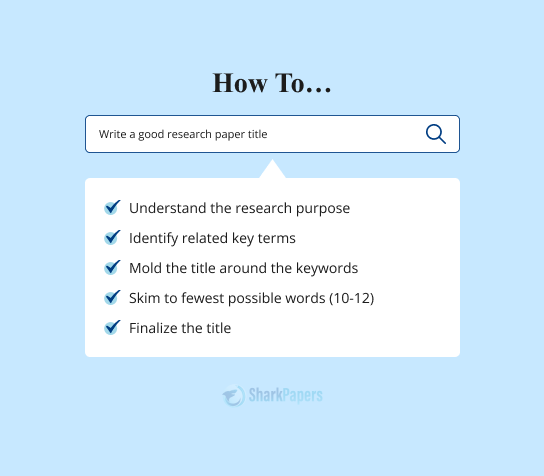
On this Page
What Is a Research Paper Title and Why Does It Matter?
A research paper title is the concise, descriptive name given to your research work. It acts as the first point of contact for readers, offering a snapshot of the study's focus and objectives. A well-crafted title summarizes the core idea of your paper and sets the tone for what follows.
Without a proper title that accurately captures the essence and purpose of your research, the paper is almost useless. The importance and significance of a title that strikes the perfect balance between clarity and creativity cannot be overstated. Here is why a good research paper title is important:
- First Impression : A good title always leaves a positive first impression, influencing the readers to give your paper a thorough read.
- Provides Clarity: It provides a clear idea of your research topic without needing to read the entire paper.
- Relevance: It communicates the importance of your research and its contribution to the field.
- Searchability: Well-chosen keywords make your research easier to find in databases and online searches.
- Innovation: Creativity in the title hints at the innovative nature of your research.
- Professional Impact: A strong title positively influences how your work is perceived by editors and peers.
- Tone Setting: It gives readers a preview of your writing style and the overall approach of your study.
- Academic Identity: A memorable title contributes to your research's identity, making it more likely to be remembered and cited.
7 Characteristics of a Good Research Paper Title
Here are the 7 common characteristics of a good research paper’s title.
- Provides clarity
- Is relevant
- Includes keywords
- Provides specific details
- Targets the audience
- Doesn’t mislead
Now, let’s understand how to write a research paper title in 5 steps.
How To Write A Research Paper Title In 5 Steps
We have broken down the process of crafting strong research paper titles into 5 simple steps.
Here are the research paper title writing steps:
Step 1. Understand the Purpose of Your Research Paper
Making a title that catches attention and tells a story is important, and to do that, you need to know why you're making it. Consider the following questions to understand the purpose of your title:
- What is the central theme of my research?
- Why is my research significant?
- Who is the intended audience for my research?
- What sets my research apart or makes it innovative?
- How can I summarize my research concisely?
Settle down, take your time, and try to answer all these questions. Soon, you’ll be able to have a clear starting path to craft a perfect title for your research paper.
Let’s take an example, and we’ll adjust the questions accordingly.
The title is too long. To start the process of making it concise, answer these questions.
After you’ve found the answers to these questions, you can narrow down your title in the next step after finding the relevant keywords. Let's look at how to accomplish that.
Step 2. Identify Key Terms Related to Your Research
In this step, pinpoint the essential terms that encapsulate the core and scope of your study. Think of these terms as the building blocks of your title, representing the key concepts and focus of your research. Choose terms that straightforwardly capture what makes your work unique.
For example , in the above sample title that relates to mental well-being for urban citizens, some key terms are:
- Urban residents
- Comprehensive survey
- Daily physical activity
- Mental well-being
- Positive correlation
- Improved mental health
You can turn to modern techniques like using search engines and Google Scholar to find relevant keywords. Such key terms have the potential to boost the online visibility of your paper.
Step 3. Mold Your Title According to the Relevant Keywords
Here is a skimmed-down title that we’ve achieved by shifting some words around, and using the proper syntax:
The title is getting closer to the final stage, but it is still too long. Read the next steps to create a working title for your research document.
Step 4. Skim to The Fewest Words Possible
Short and sweet is the golden rule for a suitable and good research paper title. Here is how you should keep your title concise:
- Remember that the title is a concise and attention-grabbing piece of text that immediately grabs the reader’s interest
- Trim away any unnecessary details that don't contribute to the core message
- Your title should summarize the intent of your research study effectively
- Avoid using complete sentences in the title
- Use phrases to keep it concise and to the point
For example, the title we craft in the last step is still quite long. Using the guidelines given above, we can skim it down to:
Typically, a title under 12 words is ideal. Keeping your title concise and using the fewest possible words has the highest chance of capturing the reader's attention. Avoid using any unnecessary words that add length to the title.
Now, to polish this title to perfection, move on to the next step.
Step 5. Finalize Your Title
Once you've trimmed down and adjusted your title, get feedback from others. Is it clear? Does it make them curious? Polish until your title shines like a beacon, inviting people to explore your research.
After feedback, your final title could be:
This final version aims to be clear, concise, and captivating. It sparks interest and urges readers to dive into the details of urban well-being and the impact of daily activity on mental health.
Research Title Examples For Students
Getting help from practical examples of good research paper titles will help you understand better.
We’ve collected some research title examples here. The following table evaluates the 5 example of research titles based on certain factors. A good title should satisfy the complete criteria in the table below:
What is a Research Paper Subtitle?
A research paper subtitle is an additional, explanatory phrase or brief statement that follows the main title of the research paper. Although not a necessity, It provides more context, clarification, or additional information about the study.
Typically, subtitles are common in social sciences research papers. Here are some examples of research paper subtitles.
Main title : “Exploring Dark Matter in the Universe”
Subtitle: “Quantum Mechanics and Observational Evidence in the Search for Elusive Cosmic Components”
Main Title: “Neurobiological Mechanisms of Memory Formation”
Subtitle: “Examining the Role of Synaptic Plasticity and Neurotransmitter Release in Learning Processes”
Main Title: “Impact of Virtual Reality on Learning Outcomes”
Subtitle: “An Experimental Study Assessing the Effectiveness of Immersive Educational Environments in STEM Education”
Main Title: “Inclusive Design for Human-Computer Interaction”
Subtitle: “User-Centered Approaches and Accessibility Considerations in Crafting Technological Solutions for Diverse Populations”
Main Title: “Youth Civic Engagement in the Digital Age”
Subtitle: “A Comparative Study of Online Activism and Traditional Participation Among Urban and Rural Adolescents”
Research Titles in Different Styles
When writing a research paper, the title format may vary depending on the citation style you are using. Here's how to craft a research article title in three popular styles:
How to Write a Research Article Title in APA
- Be Clear and Specific: The title should clearly reflect the main focus of your research.
- Capitalization: Capitalize only the first word, the last word, and any major words in the title (e.g., "The Effects of Sleep on Cognitive Performance").
- Conciseness: Keep the title brief, ideally under 12 words.
- Avoid Abbreviations and Punctuation: Do not use abbreviations or unnecessary punctuation marks.
Research Paper Title in MLA Style
- Be Descriptive and Focused: The title should provide a clear idea of the topic without being overly complex.
- Capitalization: Capitalize the first and last words, as well as all principal words in the title (e.g., The Role of Gender in Early Childhood Development ).
- Avoid Periods or Colons at the End: MLA typically doesn’t use punctuation at the end of the title unless it’s part of the title itself.
Research Paper Title in Chicago Style
- Be Clear and Concise: The title should encapsulate the research's subject and focus.
- Capitalization: Capitalize the first and last words of the title and subtitle, as well as all major words in between.
- Use a Subtitle: Chicago style often uses a subtitle to give more detail about the paper's focus.
Additional Tips on How to Write a Good Research Paper Title
Although we have covered every writing step in crafting a research paper title, keeping in mind some tips is a good idea as well. Follow these tips to make sure your title is as perfect as it can be:
- Always mold your title toward the target audience
- Choose the language that aligns with the style and tone of your paper
- Don’t end your title with a period (.), as it is not a sentence
- Do not use overly complex words in the title
- Make sure your title accurately represents the intent of your paper
- Use active verbs to convey action or intent
- You can also include a reference to the research paper thesis in your title
- Provide specific details about your focus, methodology, or findings
To wrap things up, writing a title for a research paper is considered one of the most challenging tasks in research writing. Choosing a title that accurately portrays your research work, its focus, and its aim isn’t an easy task.
With our detailed guide on how to craft a captivating research paper title, you can give your research paper an edge. From the initial draft to the final polishing of the title, you can write a great title with a little effort.
However, if you still find it rather challenging to give your paper a suitable title, don’t worry, we have a solution for that as well. This is where our expert writers come to play.
You can reach out to our paper writing service online and tell us exactly what you require. Our professionals have what it takes to craft winning papers.
Get custom research papers from us at the most affordable rates today!
Frequently Asked Questions
How do i write a good scientific research paper title, abstract, and keywords.
Title : Clearly convey the main focus, be concise, use relevant keywords for searchability. Abstract : Summarize research objectives, methods, results, and conclusions concisely; emphasize significance; avoid jargon. Keywords : Identify core concepts, consider likely search terms, use accepted terminology, be specific to enhance discoverability.
How to write a research paper title page?
Follow these steps:
- Center the title at the top.
- Include author names and affiliations below
- Add a running head if needed.
- Place the page number in the top right
- Use a readable font and follow citation style guidelines
How to write a science report title?
Crafting a science report title involves clearly stating the subject, being concise with key terms, considering audience and style, and adhering to formatting guidelines.
How to make a research paper title page in MLA style?
- Place the title at the center, avoiding bold or underlining
- Below the title, include your name, instructor's name, course, and date, aligned to the left
- Use a readable font (e.g., Times New Roman) in 12-point size
- Double-space all text
- Do not use a separate title page unless instructed otherwise; include this information on the first page of your paper
How to write a title for a lab report?
Crafting a lab report title requires clarity and conciseness. Clearly state the experiment's focus, use key terms, and include relevant variables. Follow any provided formatting guidelines for precision.
What is the best title for a research paper?
There is no universal “best” title for a research paper, as it depends on the specific content and focus of the study. The title should accurately reflect the research topic, be concise, and spark interest.
How to Write a Term Paper Title?
Here are some key tips for crafting a great term paper title:
- Be Clear and Specific: Reflect the main topic and focus of your paper.
- Keep It Concise: Avoid unnecessary words, and make it brief.
- Include Key Terms: Use relevant keywords to highlight your paper’s subject.
- Use a Subtitle (if needed): Add a subtitle to clarify complex topics.
- Avoid Jargon: Keep it understandable for a wider audience.

Donna writes on a broad range of topics, but she is mostly passionate about social issues, current events, and human-interest stories. She has received high praise for her writing from both colleagues and readers alike. Donna is known in her field for creating content that is not only professional but also captivating.
Was This Blog Helpful?
Keep reading.
- Learn How to Write a Research Paper: Step-by-Step Guide
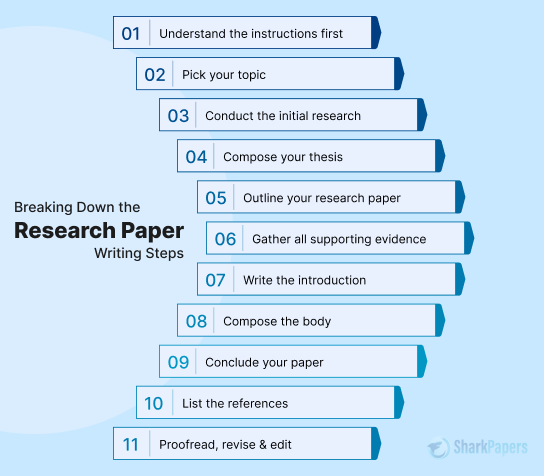
- Everything You Need To Know To Conduct Effective Qualitative Research

- Types of Qualitative Research Methods with Examples

- Best 300+ Ideas For Research Paper Topics in 2024

- How to Write a Proposal for a Research Paper: Steps & Examples

- A Beginner’s Guide on How to Write an Abstract

- 13 Best Tips to Start a Research Paper

- How To Write An Introduction For A Research Paper - A Complete Guide
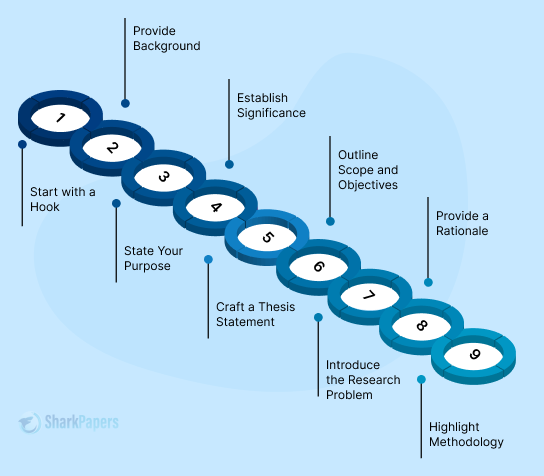
- Learn How To Write An Abstract For A Research Paper with Examples and Tips
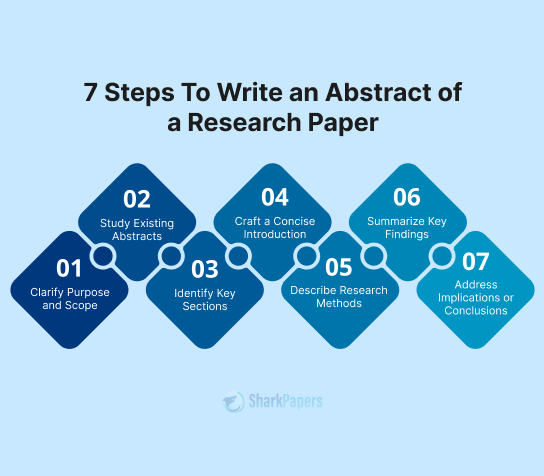
- How to Write a Literature Review for a Research Paper | A Complete Guide
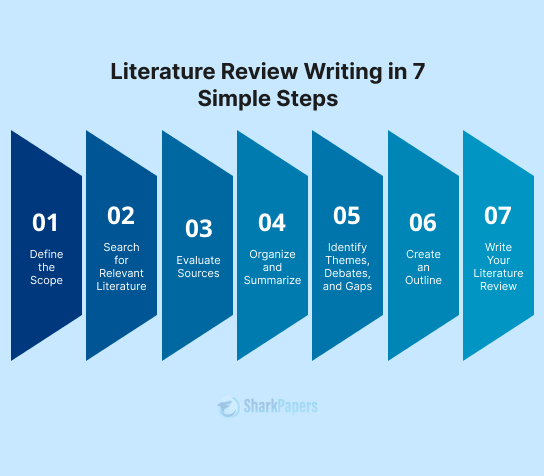
- A Guide to Writing The Methods Section of A Research Paper
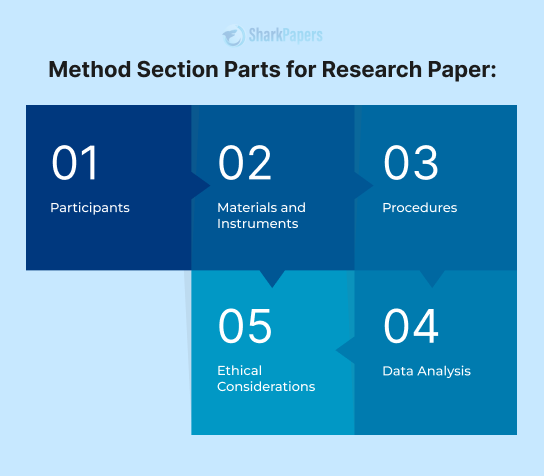
- How to Write a Research Paper Thesis: A Detailed Guide
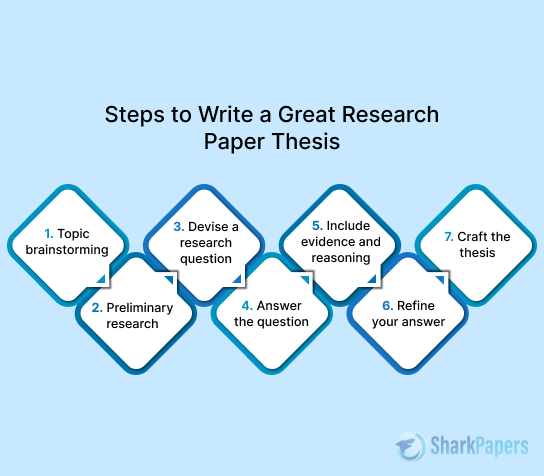
- A Detailed Guide To Writing a Research Paper Conclusion
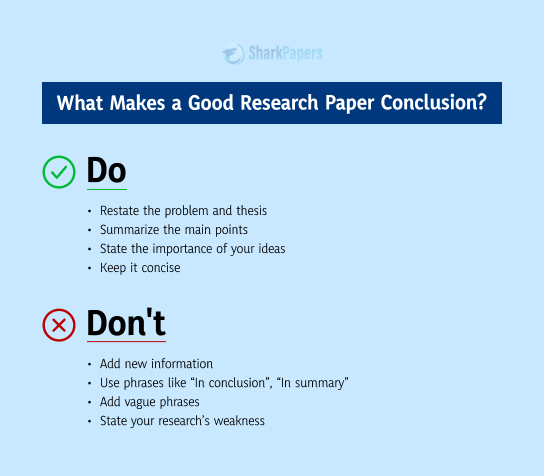
- How To Write The Results Section of A Research Paper | Steps & Tips
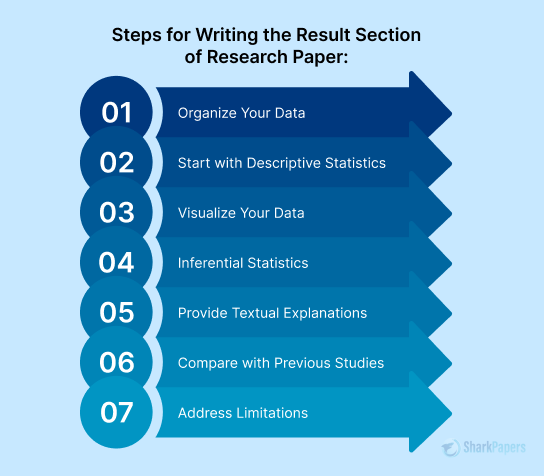
- How to Write a Problem Statement for a Research Paper: An Easy Guide
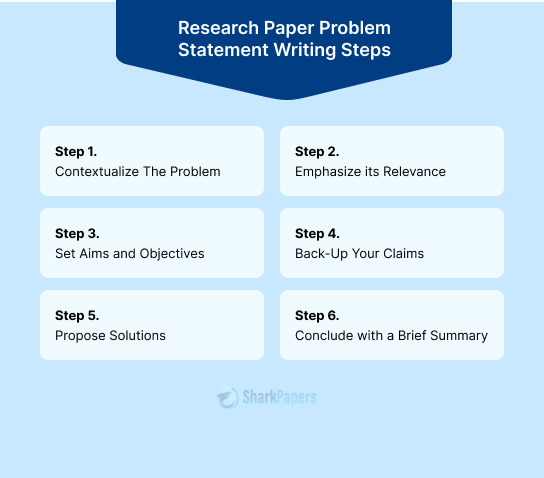
- How to Find Credible Sources for a Research Paper
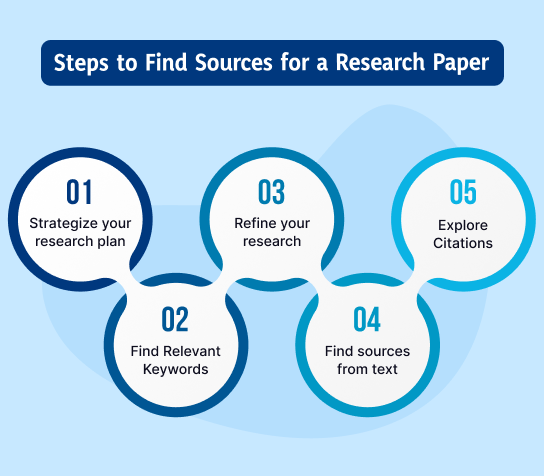
- A Detailed Guide: How to Write a Discussion for a Research Paper
)
- How To Write A Hypothesis In A Research Paper - A Simple Guide
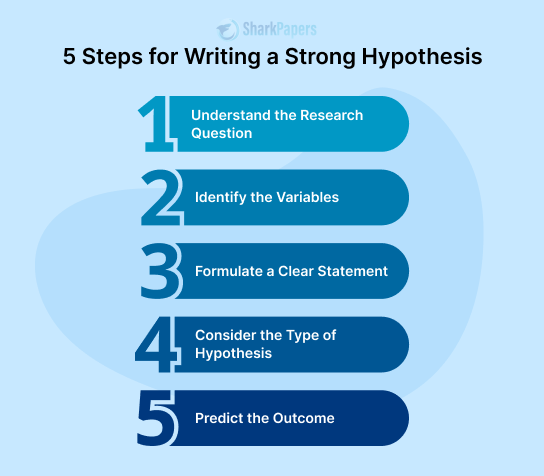
- Learn How To Cite A Research Paper in Different Formats: The Basics
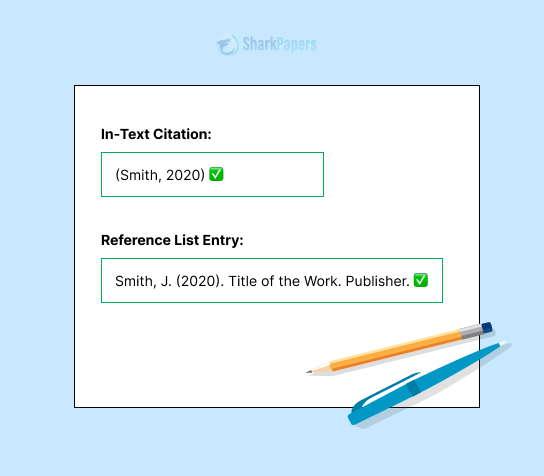
- The Ultimate List of Ethical Research Paper Topics in 2024
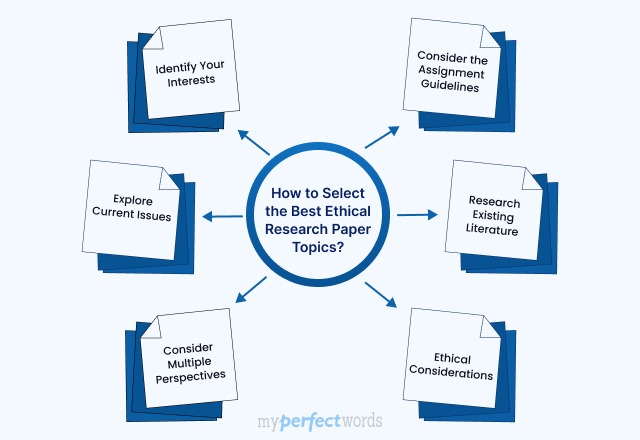
- 150+ Controversial Research Paper Topics to Get You Started
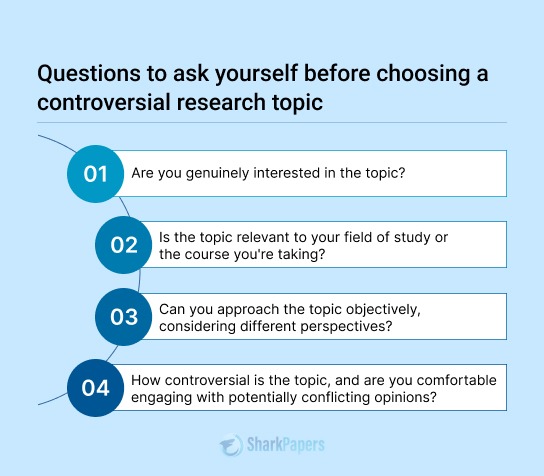
- How to Edit Research Papers With Precision: A Detailed Guide
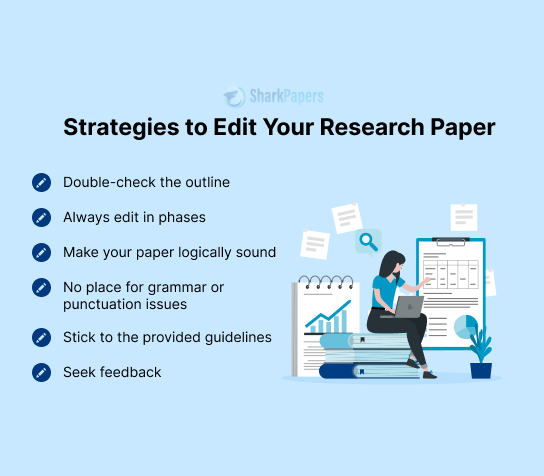
- A Comprehensive List of Argumentative Research Paper Topics
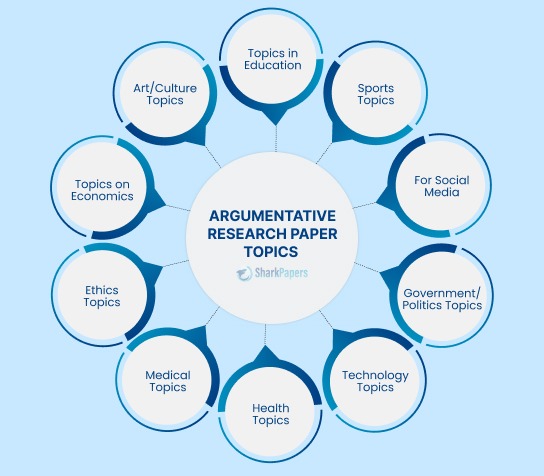
- A Detailed List of Amazing Art Research Paper Topics
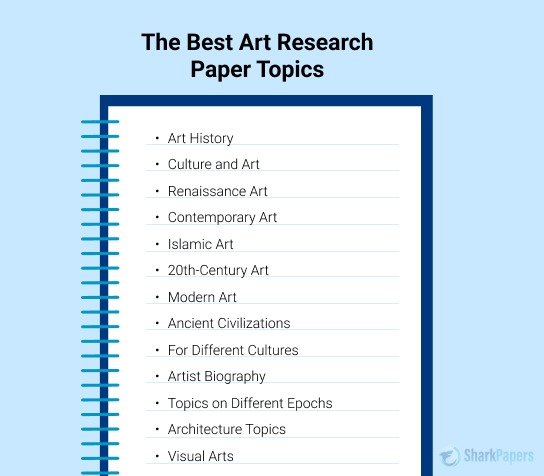
- Diverse Biology Research Paper Topics for Students: A Comprehensive List
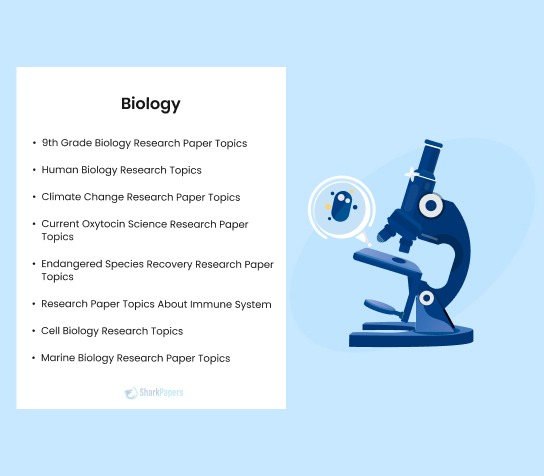
- 230 Interesting and Unique History Research Paper Topics
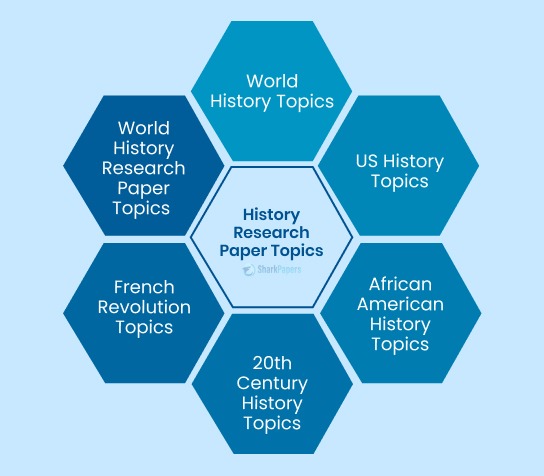
- 190 Best Business Research Paper Topics
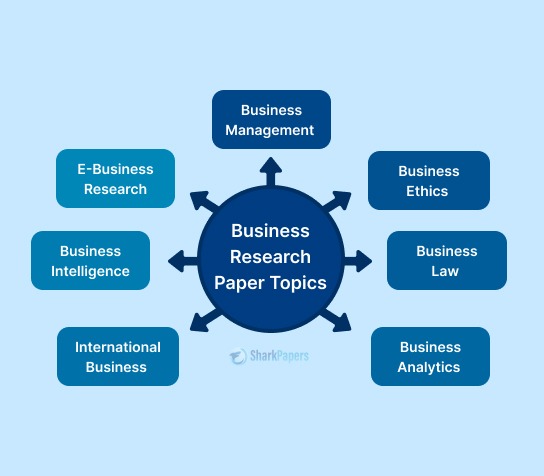
- 200+ Engaging and Novel Literature Research Paper Topics
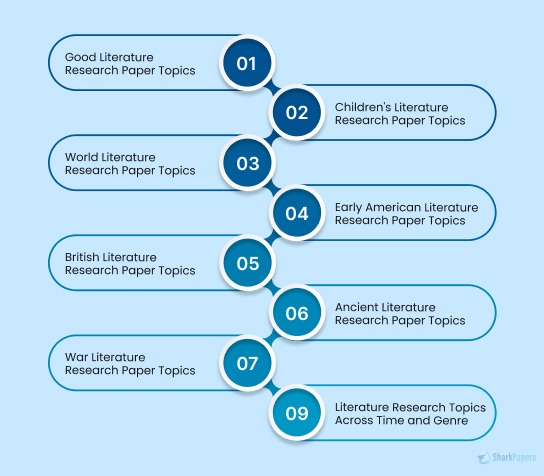
- A Guide on How to Write a Social Science Research Paper
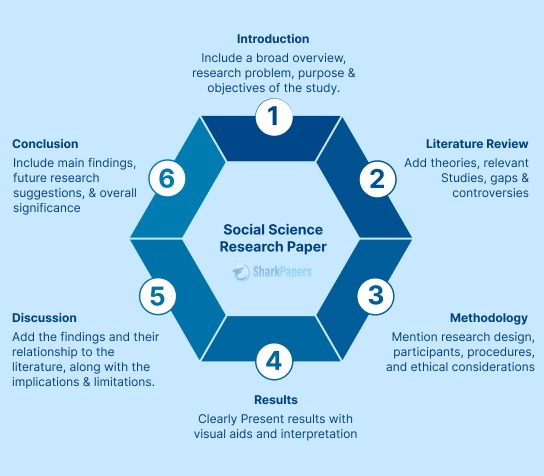
- Sociology Research Papers: Format, Outline, and Topics
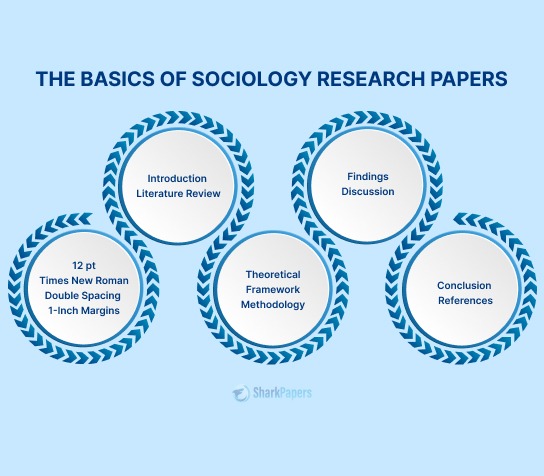
- Understanding the Basics of Biology Research Papers
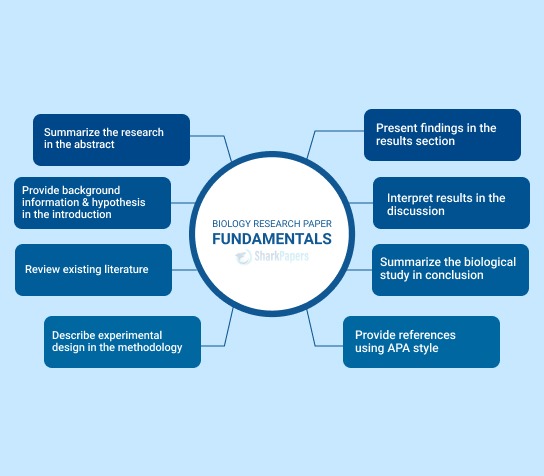
- How to Write a Psychology Research Paper: Guide with Easy Steps
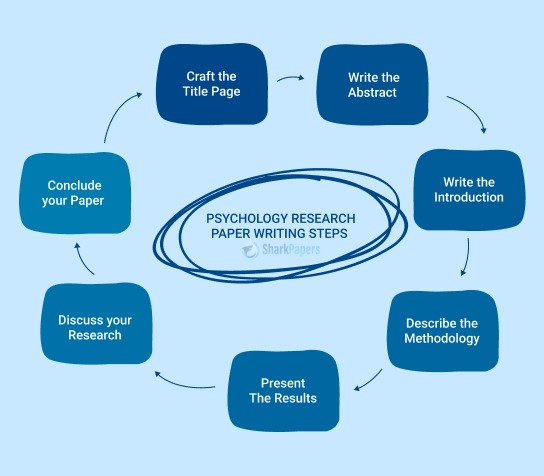
- Exploring the Different Types of Research Papers: A Guide
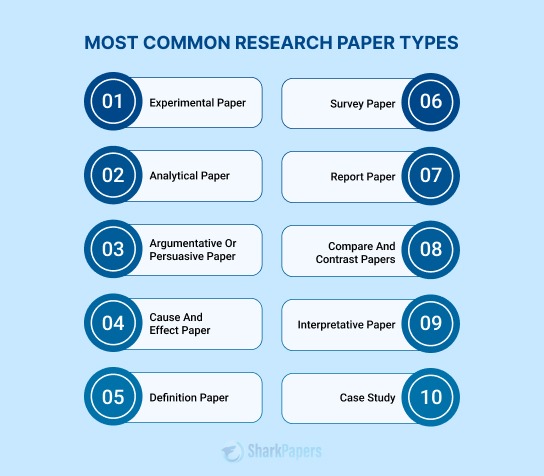
- Scientific Research Paper: Types, Formats, Structure & Writing Process

- Argumentative Research Paper | A Step-by-Step Guide

- Analytical Research Papers: A Detailed Walkthrough

- Experimental Research Paper Explained Comprehensively

- An In-Depth Look at Psychology Research Paper Examples

- 15+ Research Paper Examples for Different Types and Formats

- Free Argumentative Research Paper Examples

- Refine Your Literary Skills with Literature Research Paper Examples

- Get Inspired by 10+ Biology Research Paper Examples

- A Comprehensive Guide to History Research Paper Examples

- An Extensive List of Business Research Paper Examples

- 10+ Best APA Research Paper Examples for Effective Writing

- 10+ Expertly Crafted MLA Research Paper Examples

- Explore 8+ Chicago Research Paper Examples for Academic Excellence

- 15+ Examples of Abstracts for Research Papers

- Exploring IEEE Research Paper Examples: A Practical Guide

- Exploring Research Paper Thesis Examples: A Beginner's Guide

- 10 Free Research Paper Proposal Examples
-12114.jpg)
- A Look at 10 Interesting Art Research Paper Examples

- Survey Research Papers: Types, Format, Writing & Examples

- A Closer Look Into Research Paper Format: APA, MLA, Chicago & IEEE

- APA Research Paper Format 7th Edition: Guide with Examples

- MLA Research Paper Format Made Easy: Step-by-Step Guide

- Formatting Research Paper Title Page in APA, MLA & Chicago

- Crafting the Perfect Research Paper Outline | Steps & Examples

- A Detailed Guide to Chicago Research Paper Format

- An Easy Guide to IEEE Research Paper Format

- 12+ Practical Research Paper Outline Examples for Structuring Your Thoughts

- Engaging Psychology Research Paper Topics for Your Next Project

Struggling With Your Paper?
Get a Custom Paper Written at
with a FREE Turnitin report, AI report, title page, unlimited revisions, and a lot more!
LIMITED TIME ONLY
People Also Read
OFFER EXPIRES SOON!
© 2024 - All rights reserved
Disclaimer: All client orders are fulfilled by our team of experienced, professional writers. The essays and papers we provide are intended to serve as educational tools and reference models only, and should not be submitted as original work.
LOGIN TO YOUR ACCOUNT
SIGN UP TO YOUR ACCOUNT
- Your phone no.
- Confirm Password
- I have read Privacy Policy and agree to the Terms and Conditions .
FORGOT PASSWORD
- SEND PASSWORD
Writing Clear Science
Learn to write clearly and succinctly, without sacrificing the accuracy of your topic..

How to write good research paper titles

Your title is the first and most important step in engaging your reader. It should be concise, interesting and summarise the essential content of the document. Any title that is lengthy, overly complex, ambiguous or misleading can turn away prospective readers. This writing guide gives an overview of the different types of titles and explains the essential steps in designing your title.
Title structure
Titles can be sentence fragments, complete sentences or compound sentences with the second sentence typically following a colon.
To help the paper appear in search results, it is common practice to place keywords in the title. Keywords used in the title should be placed in the beginning in case only a fragment of the title appears in the search results.
Terms used to describe types of titles
Common terms used to describe different types of research paper titles are Descriptive, declarative, interrogative, suggestive, humorous and combination titles.
Descriptive titles or indicative titles
Descriptive titles state the subject, topic, design, purpose or methods of the project. For example:
- ‘Effects of natural forest and tree plantations on leaf-litter frog assemblages in Southern Brazil.’ ( Cicheleiro et al. 2021 ).
- ‘An efficient incremental learning mechanism for tracking concept drift in spam filtering.’ ( Jyh-Jian et al. 2017 ).
Declarative or Informative titles
These titles give the main findings or result of the study. For example:
- ‘Novel flight style and light wings boost flight performance of tiny beetles.’ ( Farisenkov et al 2022 ).
- ‘Cause of hypereosinophilia shows itself after 6 years: Loa loa.’ ( Hicks et al. 2022 ).
There is some concern that presenting the results or conclusions in the title of a paper will appear presumptive: that titles containing a definitive statement or final conclusion of a study, might prove problematic if that finding is later disproved.

Some journals prefer informative titles. For example, the Journal of Clinical Epidemiology has “… an editorial policy of “more informative titles” (MITs) that crisply and concisely tell our readers what our authors found in their research. A MIT states the study type and summarizes its key findings, using the past tense for individual studies and the present tense for systematic reviews .” The idea is that titles for small individual studies should be written in past tense to allow future studies to overrule or disagree with their findings, while titles should be written in present tense for studies that are unlikely to be over-ruled by later studies: i.e. literature reviews. Some research has also demonstrated that “articles with short titles describing the results are cited more often.” ( Paiva et al. 2012 ).
Interrogative titles
Interrogative titles or titles phrased as a question. The use of questions in titles can create interest by making the reader immediately wonder what the answer might be. It is also a concise way of presenting the research topic.
For example:
- ‘Does adding video and subtitles to an audio lesson facilitate its comprehension?’ ( Zheng et al. 2022 ).
- ‘Microbial defenses against mobile genetic elements and viruses: Who defends whom from what?’ ( Eduardo et al. 2022 ).
Suggestive titles
These are titles that are slightly ambiguous or overly brief to hint or suggest what the findings might be, presumably to create suspense to entice the reader to find out what the answer is. For example:
- ‘Drawing to improve metacomprehension accuracy’. ( Thiede et al. 2022 ).
- ‘The puzzle of high temperature superconductivity in layered iron pnictides and chalcogenides.’ ( Johnston 2010 ).

Humorous or colloquial title
These are titles that hope to attract interest through humour or common-use sayings, colloquialism or metaphors. These types of titles can be used to good effect. However, be mindful that colloquialisms might not make sense to readers from different language or cultural backgrounds.
For example:
- ‘miR miR on the wall, who's the most malignant medulloblastoma miR of them all?’ ( Wang et al 2018 ).
- ‘One ring to multiplex them all’ ( Torres-Company 2017 ).
- ‘Sauropod farts warmed the planet.’ ( Marshall 2012 ).
Combination titles
Combination titles are those that include a combination of different types listed above.
The following example uses a colloquialism in the key title with the findings mentioned in the sub-title:
- ‘Standing out in a crowd: Intraspecific variability in dorsal patterning allows for photo-identification of a threatened anuran.’ ( Gould et al. 2021 ).
The following example has the following structure: ‘Topic: results of study’
- Plastic Pollution in the World's Oceans: More than 5 Trillion Plastic Pieces Weighing over 250,000 Tons Afloat at Sea ( Eriksen et al. 2014 ).
Which type is better?
There are conflicting views which type of title is better. There are arguments for and against different types, with research findings presenting the pros and cons of different types of title. Before you decide which is best, first look at how titles are commonly structured in recently published journals within your discipline.

Essential steps in designing your title
The following steps will help you design your document title.
1. Read the Instructions to Authors
Once you have selected a journal, review the types of titles recently published and read the Instructions to Authors to learn what the journal requires for paper titles. Instructions regarding titles are often brief. For example:
- Elsevier’s Guide for Authors “Title - Concise and informative. Titles are often used in information-retrieval systems. Avoid abbreviations and formulae where possible.”
- Plos One Submission Guidelines state that titles should be “…Specific, descriptive, concise, and comprehensible to readers outside the field.” and “…written in sentence case (only the first word of the text, proper nouns, and genus names are capitalized). Avoid specialist abbreviations if possible. For clinical trials, systematic reviews, or meta-analyses, the subtitle should include the study design.”
2. Consider your audience
Although the expected audience is broadly set by the scope of the journal, you still need to identify who will be interested in your paper. Who is your target audience? Are they scientists who mostly work in your field or will they include researchers from other disciplines? Consider what aspects of your project would attract your target audience and whether or not you can include these in your title.
3. Decide what aspects of your study to include in your title
As outlined above (Types of titles) decide whether you want to describe the process (descriptive) the result (informative) the research question or problem (integrative) or a combination of these factors.
Description of methods and study design
Titles of research papers, reports and conference proceedings often contain standard research methods. For example:
- ‘Plant-based diets and incident cardiovascular disease and all-cause mortality in African Americans: A cohort study.’ ( Weston et al. 2022 ).
- ‘Using scale modelling to assess the prehistoric acoustics of Stonehenge.’ ( Cox et al. 2020 ).
- ‘The use of chronosequences in studies of ecological succession and soil development.’ ( Walker et al 2010 ).
Description of study subjects and location
Titles often just describe the key study subject, and also often including habitat or location. For example:
- ‘Making (remote) sense of lianas.’ ( van der Heijden 2022 ).
- ‘The vulnerability of native rangeland plant species to global climate change in the West Asia and North African regions’ ( Ouled Belgacem & Louhaichi 2013 ).

How specific or general should your title be?
Your title should be unique to your project. Hopefully, no one else is writing a paper exactly the same as you, and your title should reflect this. If your title is too broad or general, then you may give the impression that the study is larger than it is or that it is a literature review. This is when it is important to make a distinction between ‘topic’ (general) and ‘title’ (specific). Unless you are writing a literature review or presenting a large-scale study, don’t give your research topic as your title.
Including information on the scope of the study will also help the reader understand the magnitude of your study and from this, the importance and implications of the findings. In the following example, “in highway bridges” gives the scope of the study:
- ‘Finite element based fatigue assessment of corrugated steel web beams in highway bridges.’ ( Wang & Wang 2015 ).
Avoid making your title too long with too much specific detail. For example, perhaps this title is too long:
- ‘Use of open-text responses to recode categorical survey data on postpartum contraception use among women in the United States: A mixed-methods inquiry of Pregnancy Risk Assessment Monitoring System data.’ ( Richards et al, 2022 ).
4. Consider your reader’s behaviour
Assume your reader only has a short time to decide if your title is relevant and that they will only review the abstract if the title interests them. Titles that include standard procedures, common cause-effect scenarios or well-known research topics, might be overlooked in preference for titles describing unique approaches or interesting findings.
5. Check that your title is clear and easy to read
Your main message must be clear. Your titles don’t have to be grammatically-complete sentences, but make sure they make sense, especially if you have tried to shorten them by cutting out words. Don’t sacrifice clarity for brevity by making your title obscure.
Beware of using adjectival-noun strings in your titles. This is when authors try and be more concise by placing too many adjectives in front a single noun making it difficult to decipher whether each adjective is actually modifying the root noun or another word in the adjectival-noun string. Take an example from a student report: ‘ Australian insecticide control failure .’ (Anon.) This might be interpreted as:
- The failure of insecticide to control something in Australia.
- The failure of Australian insecticide to control something somewhere else.
- The failure to control [the use of] Australian insecticide.
Another unclear example: ‘Post head emergence spring radiative frost damage of winter cereals.’ (Anon.) It could be made even longer: ‘Winter cereal post head emergence spring radiative frost damage.’

6. Check your title length
The shorter the title, the easier it will be to read but only to a certain point. Too short and you risk sacrificing your meaning. Also, If you leave out too much detail, the title may appear too general and mislead the reader. If the reader has to guess what the meaning, you increase the chance of losing them. Check that your title is not too ambiguous, cryptic or inadvertently misleading. An ambiguous media release example:
- ‘Lupins show healthy potential for increased human consumption.’ ( Australian Food News 2008 ).
7. Check that your title is concise
Titles can be made more concise by removing unnecessary repetition and detail. Common research phrases can be removed without affecting the meaning or structure of the title. Examples of these research phrases include ‘The influence of...’, ‘The role of..’, ‘Effects of..’, ‘Observations of..,’ ‘Studies on...’
For example: ‘Annual variation in the distribution of summer snowdrifts in the Kosciuszko alpine area, Australia, and its effect on the composition and structure of alpine vegetation.’ ( Edmonds et al. 2006 ) [25 words] could be reduced to: “Distribution of summer snowdrifts influences composition and structure of Kosciuszko alpine vegetation, Australia” [13 words].

8. Ways to make your title more interesting
Ask a question
By writing a title in the form of a question you are immediately inviting the reader to think. For example:
- ‘Whose shoulders is health research standing on? Determining the key actors and contents of the prevailing biomedical research agenda.’ ( Testoni et al. 2021 ).
Be humorous or focus on the unusual or unexpected
Mildly humorous titles immediately engage the reader while unusual or unexpected tiles create curiosity.
- ‘On human odour, malaria mosquitoes, and Limburger cheese.’ ( Knols 1996 ).
Final considerations
My key advice is, ensure your title is concise, easy to read (for your target audience), not too long and adequately reflects your study’s design or purpose (not too general or too specific).
- Is it hard to read?
- If it is a question, does it make your reader wonder what the answer is?
- If it is a summary of your methods, are these methods unique or reveal a fresh approach or are they just standard and well-known and therefore unlikely to stand-out?
- If it is the answer or conclusion to your problem, are you risking letting the reader think they now don’t need to read the paper? Or might your conclusion-title be a way to hook your reader into finding out more about your study?
- Does it create interest or curiosity?
© Dr Marina Hurley 2022 www.writingclearscience.com.au
Any suggestions or comments please email [email protected]
Find out more about our online science writing course...
How to be an Efficient Science Writer

The Essentials of Sentence Structure
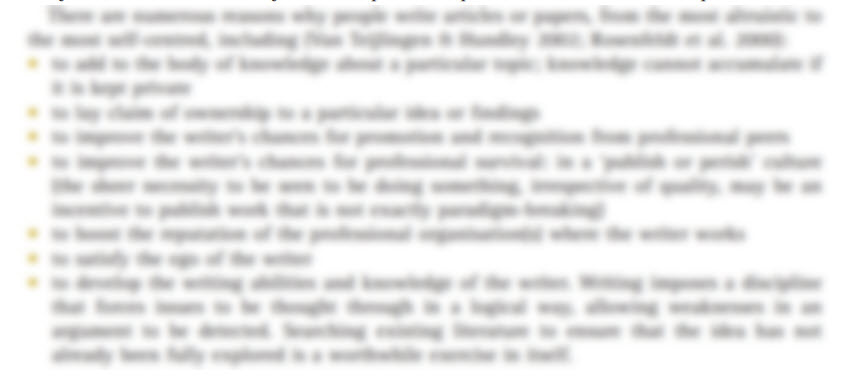
Now includes feedback on your writing Learn more...
SUBSCRIBE to the Writing Clear Science Newsletter
to keep informed about our latest blogs, webinars and writing courses.
F URTHER READING
- Should we use active or passive voice?
- 10 writing tips for the struggling ESL science writer
- Co-authors should define their roles and responsibilities before they start writing
- How to write when you don’t feel like it
- When to cite and when not to
- Back to basics: science knowledge is gained while information is produced
- How to build and maintain confidence as a writer
- If science was perfect, it wouldn’t be science
- The essentials of science writing: What is science writing?
- 8 steps to writing your first draft
- Two ways to be an inefficient writer
- Work-procrastination: important stuff that keeps us from writing

IMAGES
VIDEO
COMMENTS
Master the art of crafting 200+ research title ideas with our comprehensive guide. Elevate your scholarly impact today! ... Review titles of relevant studies in your field to identify common patterns and effective strategies. ... 100+ Best DNP Project Ideas For Mental Health; Categories. Accounting (63) Book (26) business (13)
Step 3: Research title writing: use these keywords "We employed a case study of 60 liver transplant patients around the US aged 20-50 years to assess how waiting list volume affects the outcomes of liver transplantation in patients; results indicate a positive correlation between increased waiting list volume and negative prognosis after the transplant procedure."
Tip: These are great research titles from which you can coin research topics for STEM students. Research Problems Examples Computer Science. Compare and contrast the two major operating systems: Mac and Windows, and discuss which one is better. Tip: This title of the research study example can lead to strong uninformed opinions on the matter ...
Crafting a Compelling Research Paper Title Identifying research study keywords for a strong title. Research titles matter. The best research paper title starts with: a) Finding the most important parts of your research questions. b) Choosing only the most important terms for your keywords. c) Drawing 3 to 8 keywords maximum, avoiding very ...
A strong research topic comprises three important qualities: originality, value and feasibility.. Originality - a good topic explores an original area or takes a novel angle on an existing area of study.; Value - a strong research topic provides value and makes a contribution, either academically or practically.; Feasibility - a good research topic needs to be practical and manageable ...
Research Paper Title. The title of a research paper is the first thing readers see, serving as a window into the study's purpose, scope, and content. A well-crafted title grabs attention, reflects the main focus of the research, and helps readers determine if the paper is relevant to their interests.
Let's look at some basic rules to follow while crafting a fitting title for your research paper. 2.1 Be Specific and Avoid Being Generic. A generic title is broad, vague, and lacks specificity about the research findings. It does not highlight the research's unique factors or the study's contribution. Generic title
As we will see, Title 4 has all the characteristics of a good research title. Characteristics of a Good Research Title. According to rhetoric scholars Hairston and Keene, making a good title for a paper involves ensuring that the title of the research accomplishes four goals as mentioned below: It should predict the content of the research paper.
Research Title Examples For Students. Getting help from practical examples of good research paper titles will help you understand better. We've collected some research title examples here. The following table evaluates the 5 example of research titles based on certain factors. A good title should satisfy the complete criteria in the table below:
Some journals prefer informative titles. For example, the Journal of Clinical Epidemiology has "… an editorial policy of "more informative titles" (MITs) that crisply and concisely tell our readers what our authors found in their research. A MIT states the study type and summarizes its key findings, using the past tense for individual studies and the present tense for systematic ...